Submitted by WA Contents
Twin rammed earth villas feature "strongly minimalist and simple" touches in Costa Rican jungle
Costa Rica Architecture News - Feb 08, 2023 - 17:26 5425 views
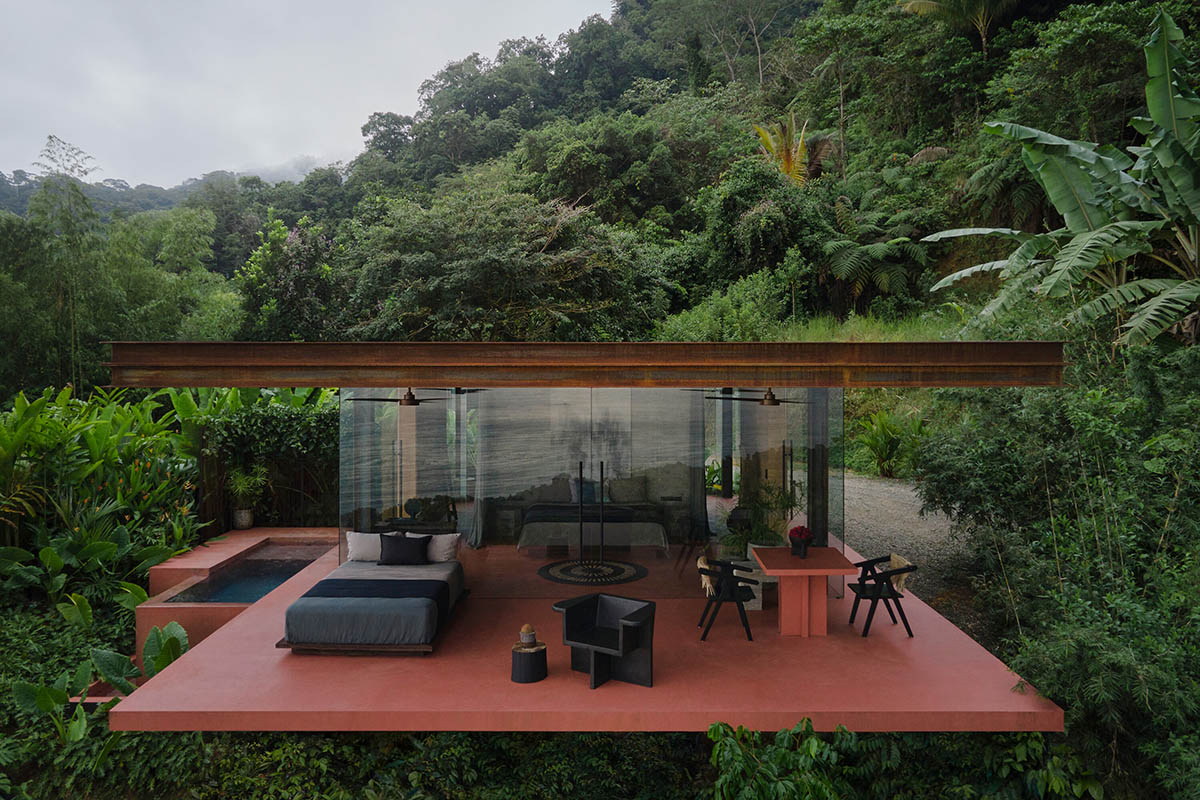
Twin villas, made of rammed earth, feature "strongly minimalist and simple" touches in contrast to the messy jungle in Costa Rica.
Designed by the Czech Republic and Costa Rica-based studio Formafatal, the twin villas are situated on a hillside in Playa Hermosa, Costa Rica, featuring floor-to-ceiling glass and three solid exterior walls - made from rammed earth - to grasp mesmerizing views from the jungle.
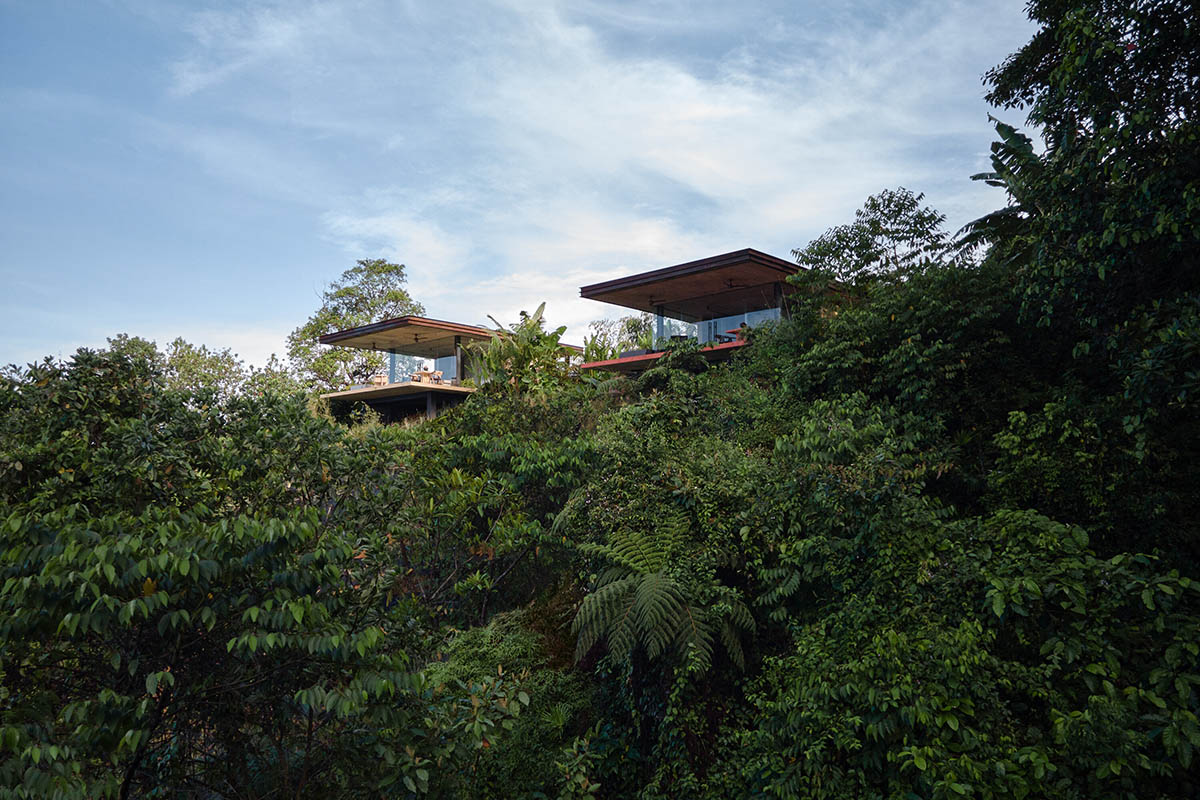
The sharp lines and minimalist layout of the villas create a strong contrast with its surrounding where they are situated in. The variation of colors complements the natural beauty of the site.
Named Achioté, the two minimalist-shaped villas were designed for short-term rent partially and levitate above the edge of a steep hill of the overgrown jungle and bring endless views of the Pacific Ocean.
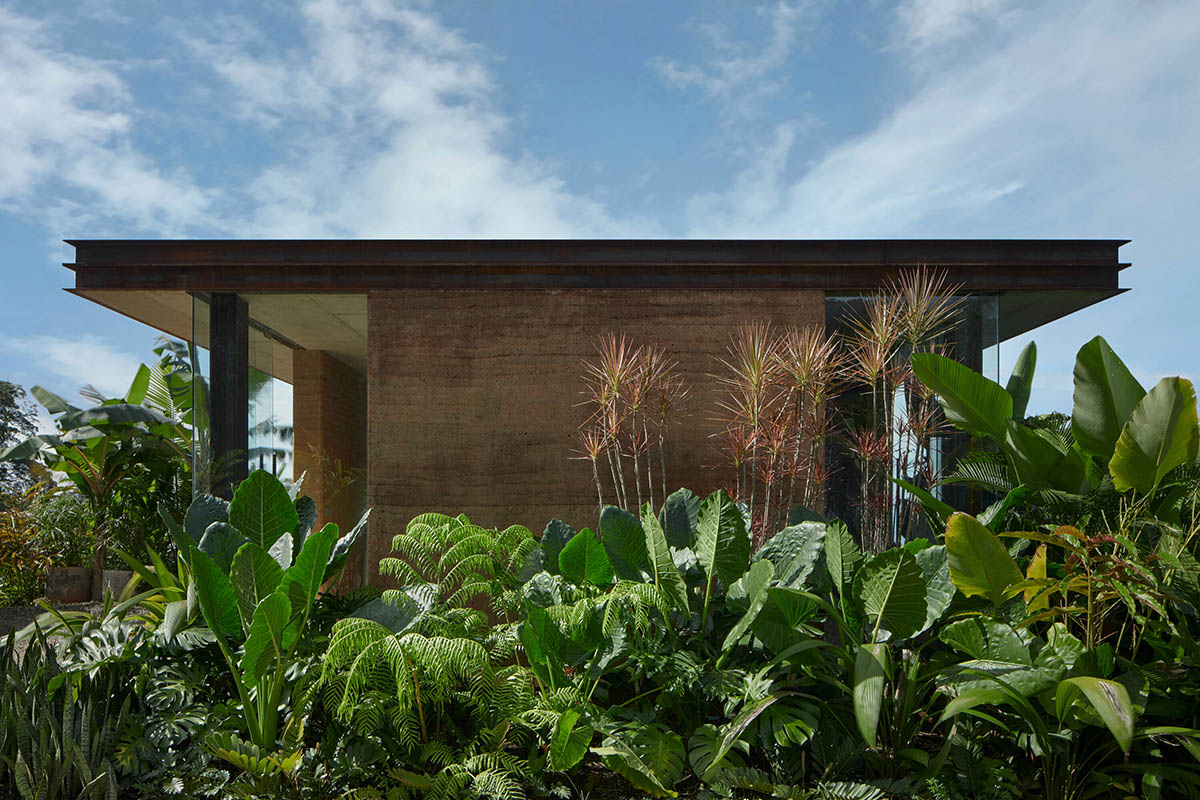
The villas are situated near Uvita town on a plot of 11,000 square meters and placed 300 meters above the sea level.
Both villas have the same floor plan, with each covers a total of 90-square-metre area. According to the studio, "the project is the very first rammed earth construction in Costa Rica."
Formafatal, led by Dagmar Štěpánová - who is the founder of the studio, paid great attention to the principles of sustainability and the surrounding wilderness when designing the villas.
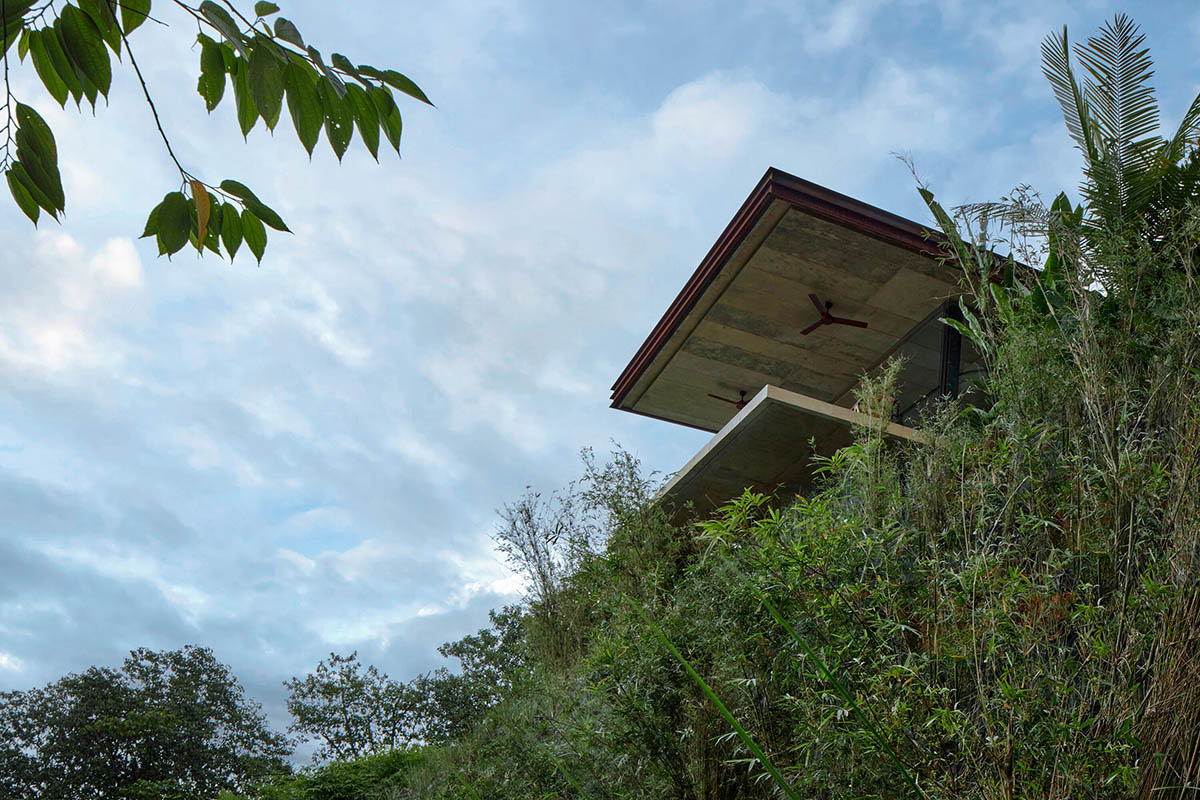
Dagmar Štěpánová worked at the same time as co-investor, project manager and construction manager for the project.
"My intention was to design sustainable houses with biophilic interiors, which will be sophisticatedly thought-up and at the same time their shaping will be strongly minimalist and simple. No unnecessary extra element, but also nothing to miss," said Dagmar Štěpánová.
"The architecture of villas is deliberately with its thin and sharp lines in contrast to lush tropical vegetation, but the chosen materials and colors are perfectly coinciding with the surroundings."
"Both villas are architecturally the same," she said. "Materials, floor plan layout, or orientation towards cardinal points are also identical."
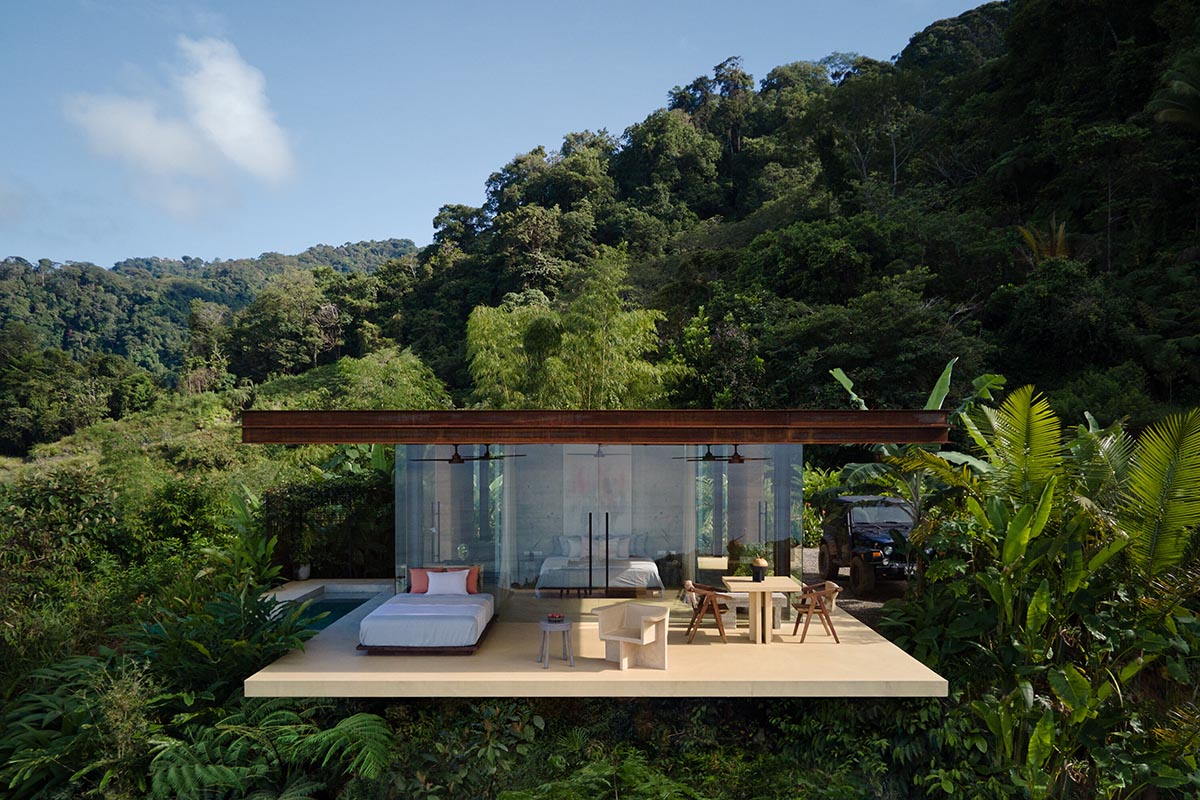
The only difference of the villas is their interior designs, through its color concept, which is partly reflected also in exteriors.
The studio explained that the architectural design is based on the genius loci - on the orientation of the building plot towards the endless view of the Pacific Ocean and the morphology of the terrain.
On the other hand, the use of colors in the interiors responds to the energies that were perceived in the location of the villas before their construction.
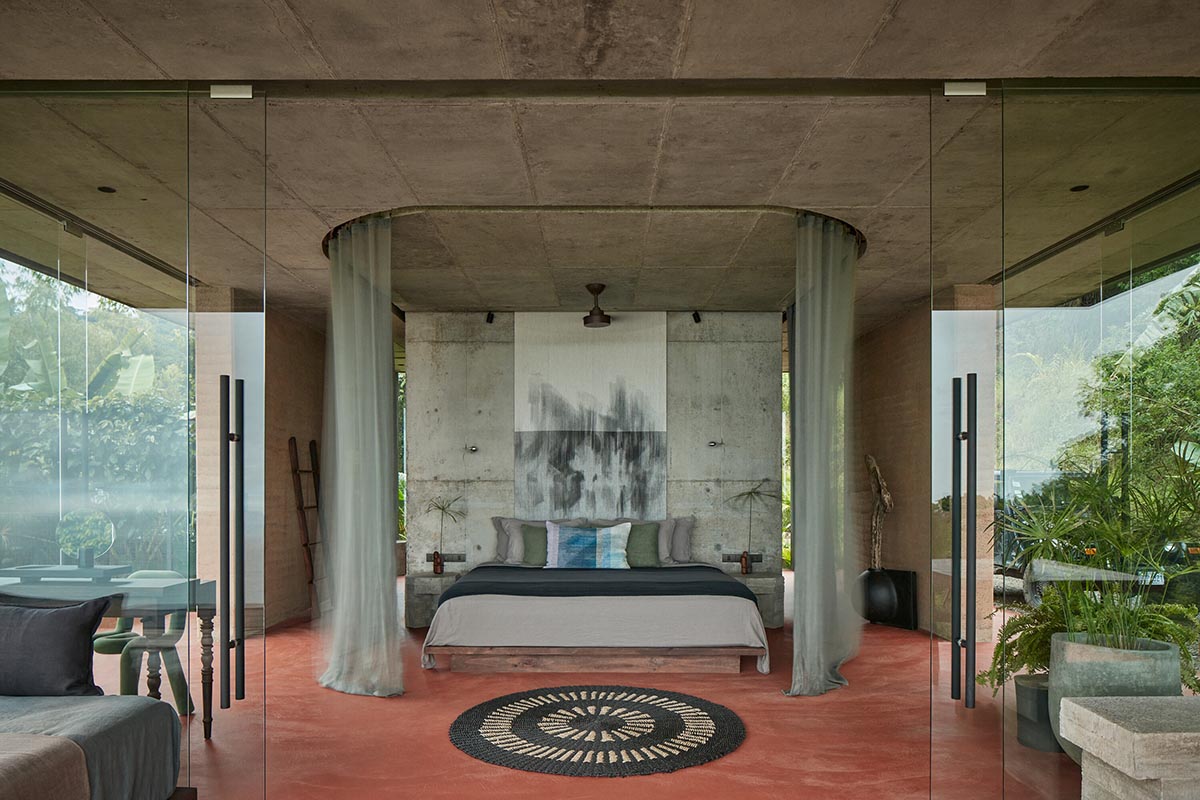
The villas are separated from each other with only 12-metre distance, and each of them has clearly different vibrations that the architect aimed to reflect in the interior design.
The twin villas are named as Jaspis Villa (bright villa) and Nefrit Villa (dark villa).
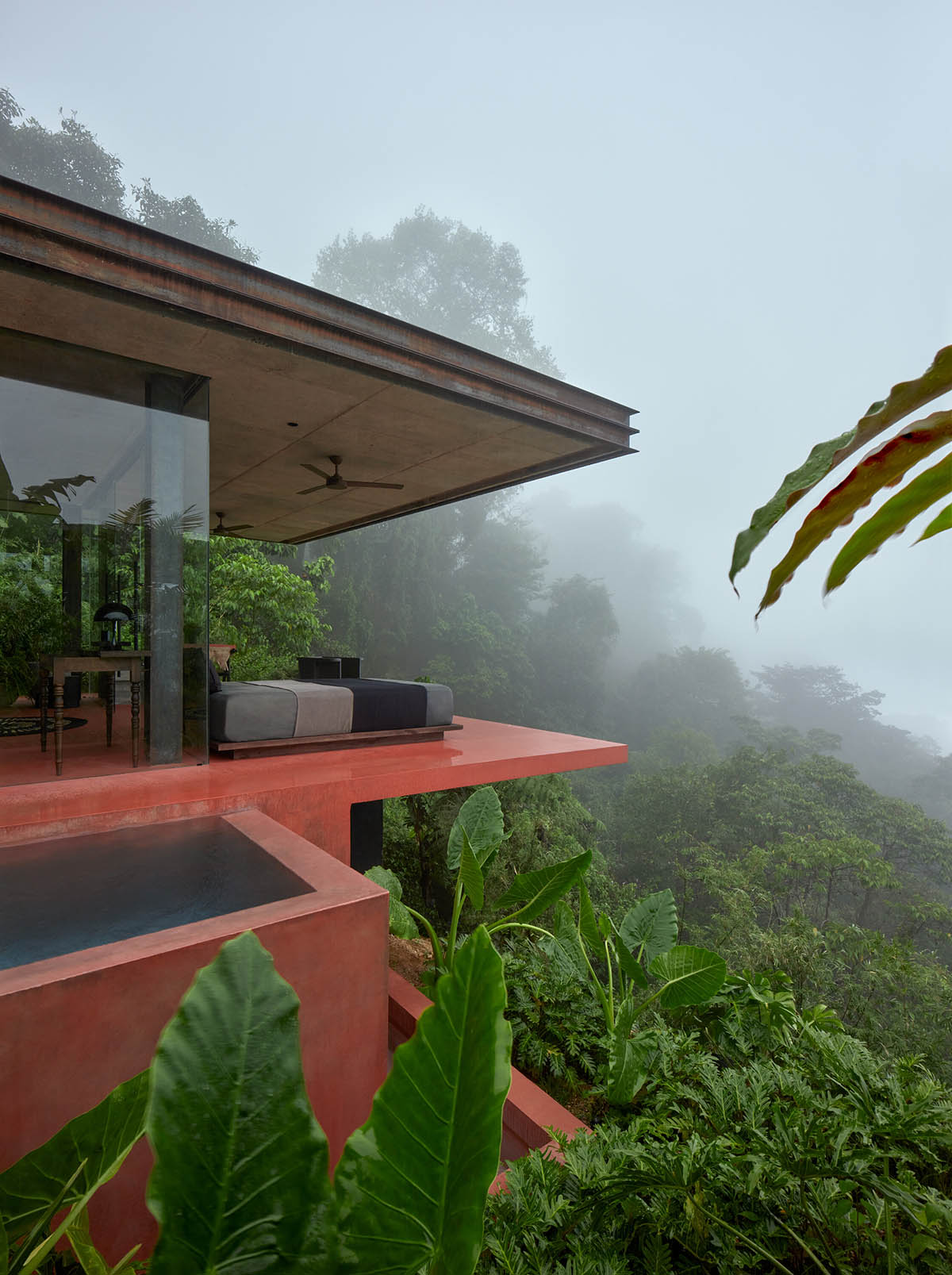
While Jaspis Villa emerges as a reflection of yin energy, this villa is connected to the ocean and sky, not only visually, but also its vibrations. Its color concept features sand shades, in which the architects responds to this interconnection.
Nefrit Villa is a reflection of yang energy. In this villa, according to the architect, "guests can feel the connection with the ground and the jungle."
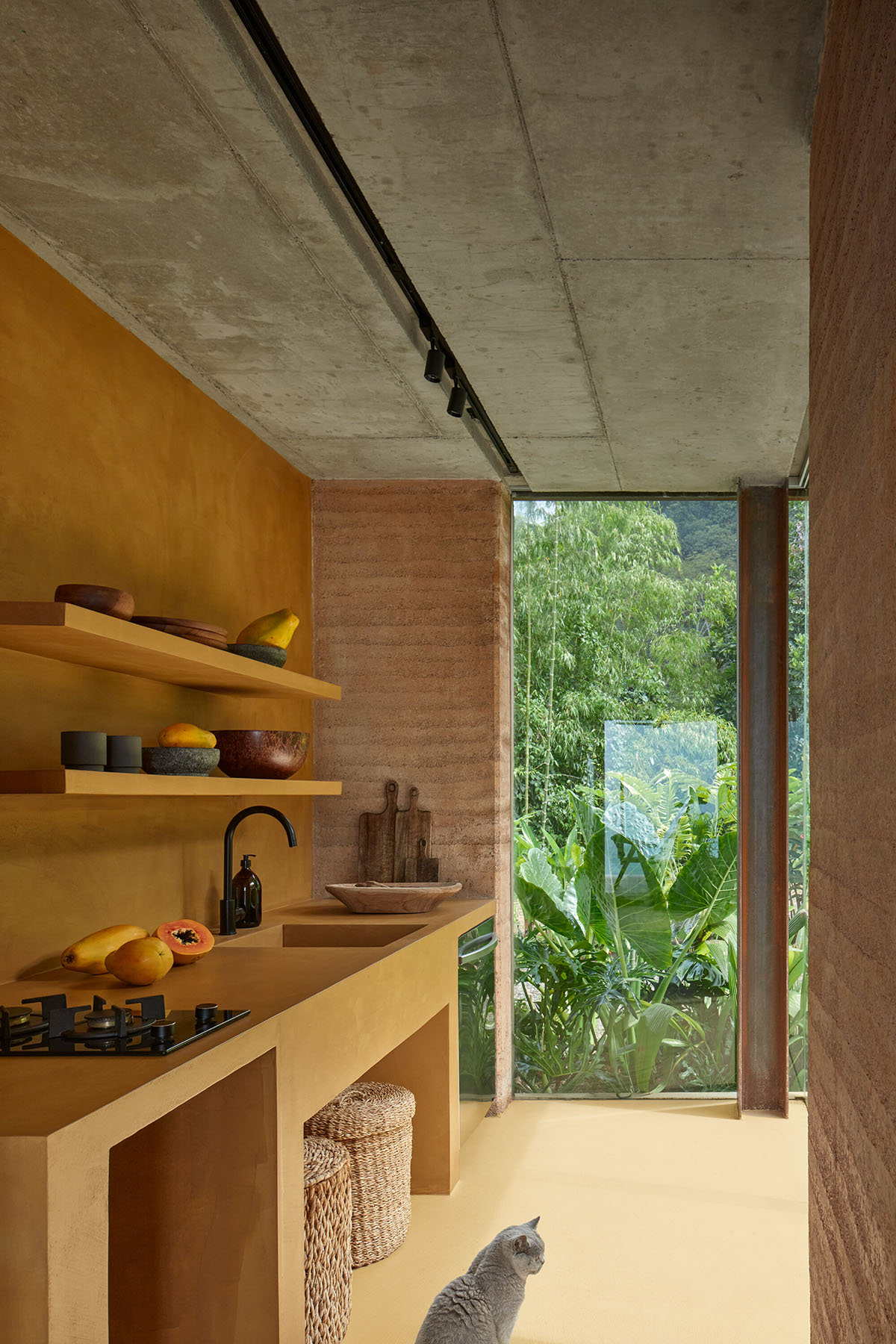
The preferred color concept is reaction to these energies and the red-terracotta color of the concrete floor transmits the shade of local soil to the interior of the house.
"Upon arrival, both villas seem very inconspicuous, humble," said the studio. On the sides they are lined with newly planted tropical plants."
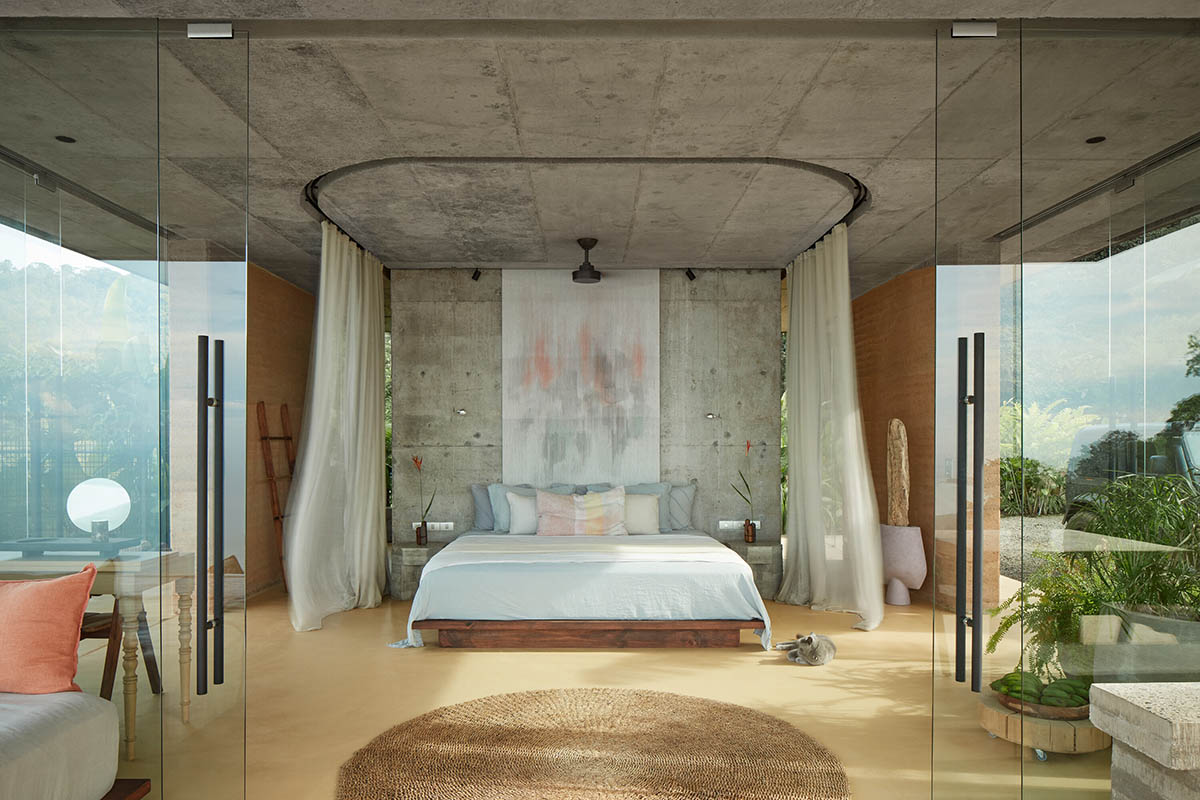
"But as soon as you pass through the villa, further towards the levitating terraces, after a few steps, the view of the ocean is opening, and you will find yourself in the generous space of the main bedroom with adjacent terraces and infinity plunge pool."
"As if you suddenly find yourself in a different villa other than you entered," the office added.
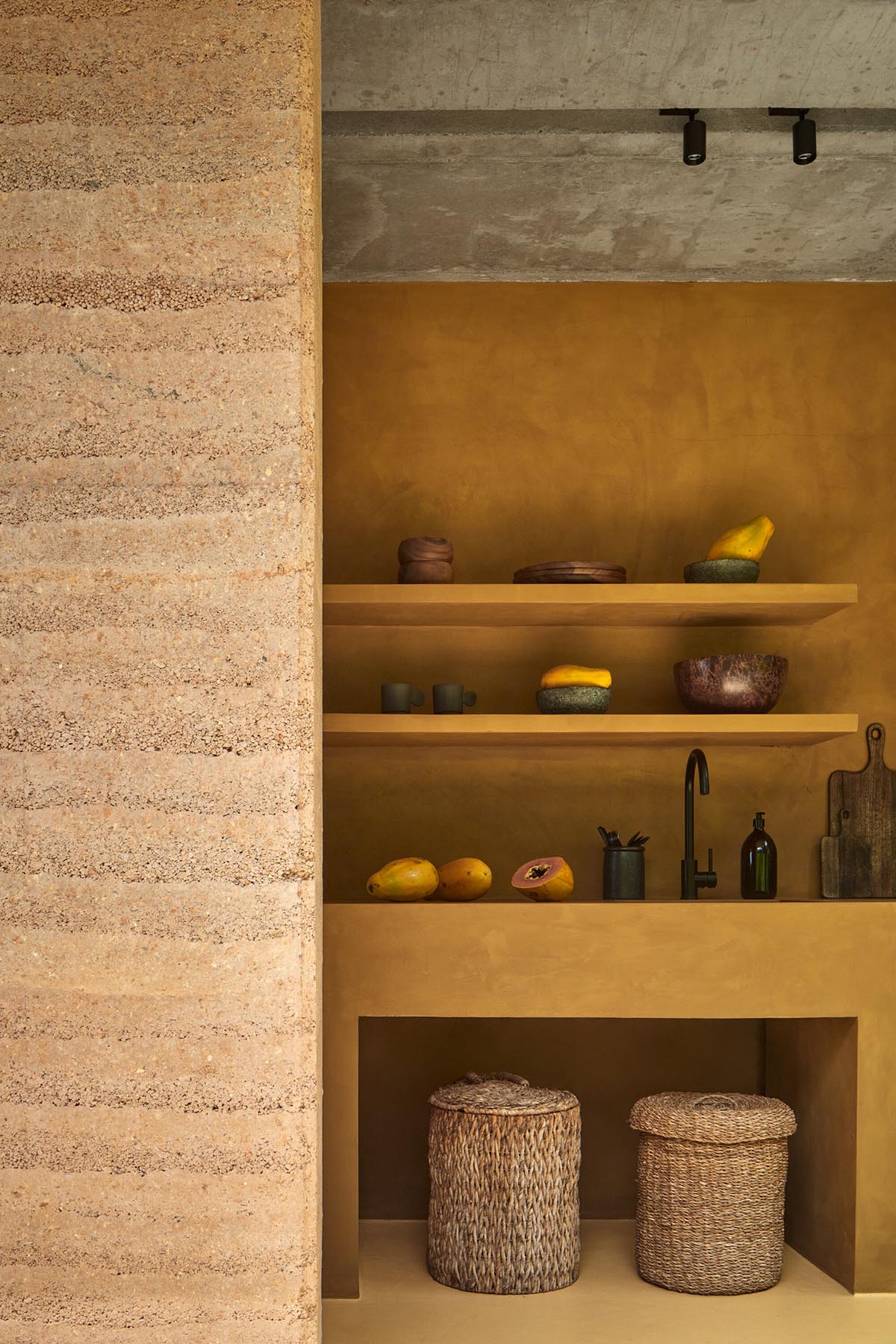
"I put an extreme emphasis on all construction – architectural details and their mutual constraints"
The architect Dagmar Štěpánová stated that "I put an extreme emphasis on all construction – architectural details and their mutual constraints."
Paying great attention to details and materials, the architect used raw visual materials in the project. While the walls were made of rammed earth, concrete were complemented by the structural steel H-beams, supporting a concrete monolithic ceiling slab.
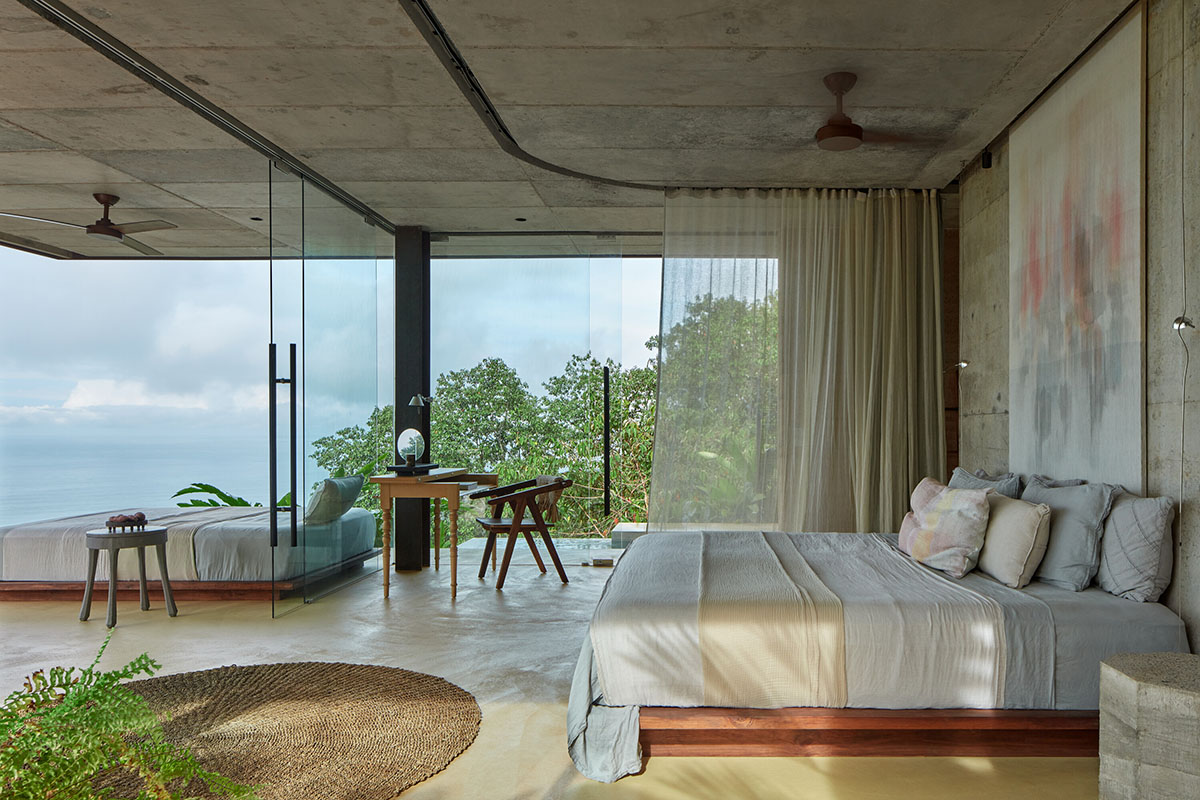
The team made girders and ring beam of the house visible which is only perceived in the upper face of the roof, which is lined with a pair of steel “U” profiles. The design team also revived the function of the roof attic.
All facades of the villas were oriented to endless views of the ocean with frameless glass. The profiles of sliding and solid parts of the glass facades were recessed into the grooves in the concrete ceiling slab.
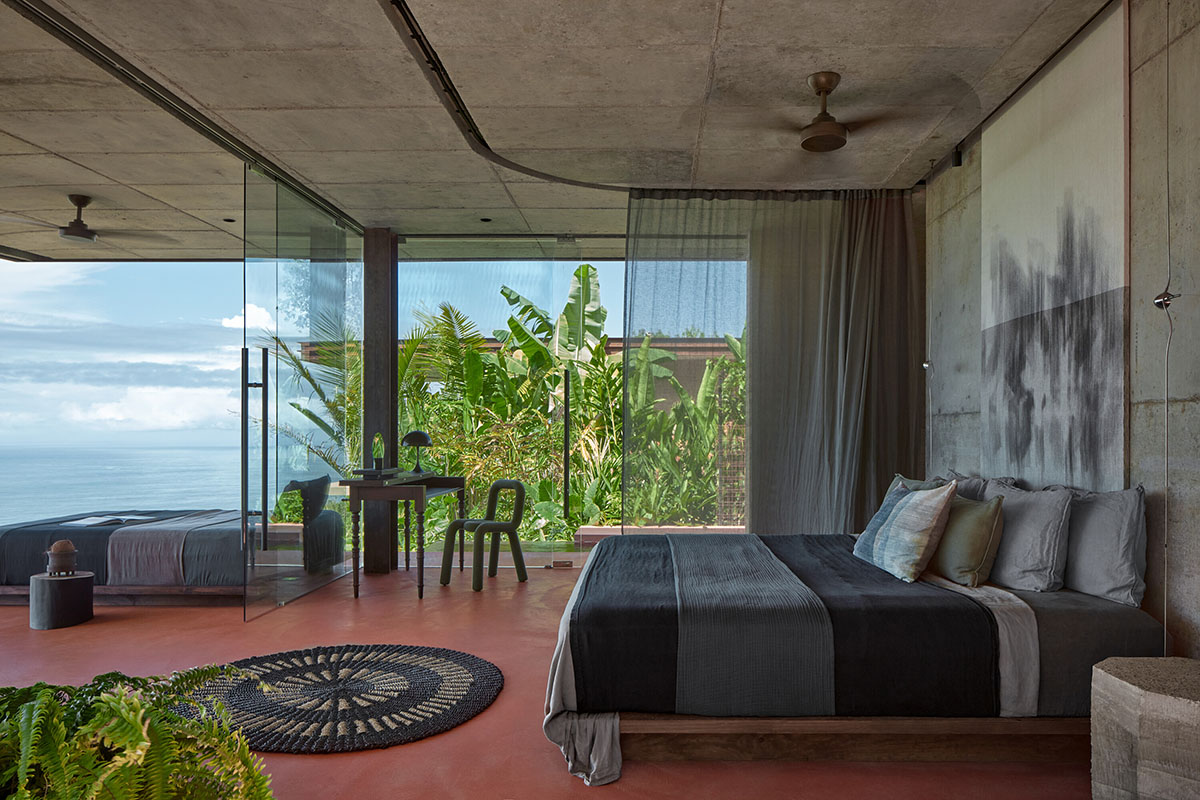
In this way the studio also applied the installation of interior lighting rails and the connecting rail for the mosquito net and the curtains around the bed.
The concrete floor slab is clad in a non-slip structured cement screed, which is different in each villa. The remaining interior walls including concrete custom-designed solid furniture, are also in the surface of cement screeds, but here in smooth matte finish.
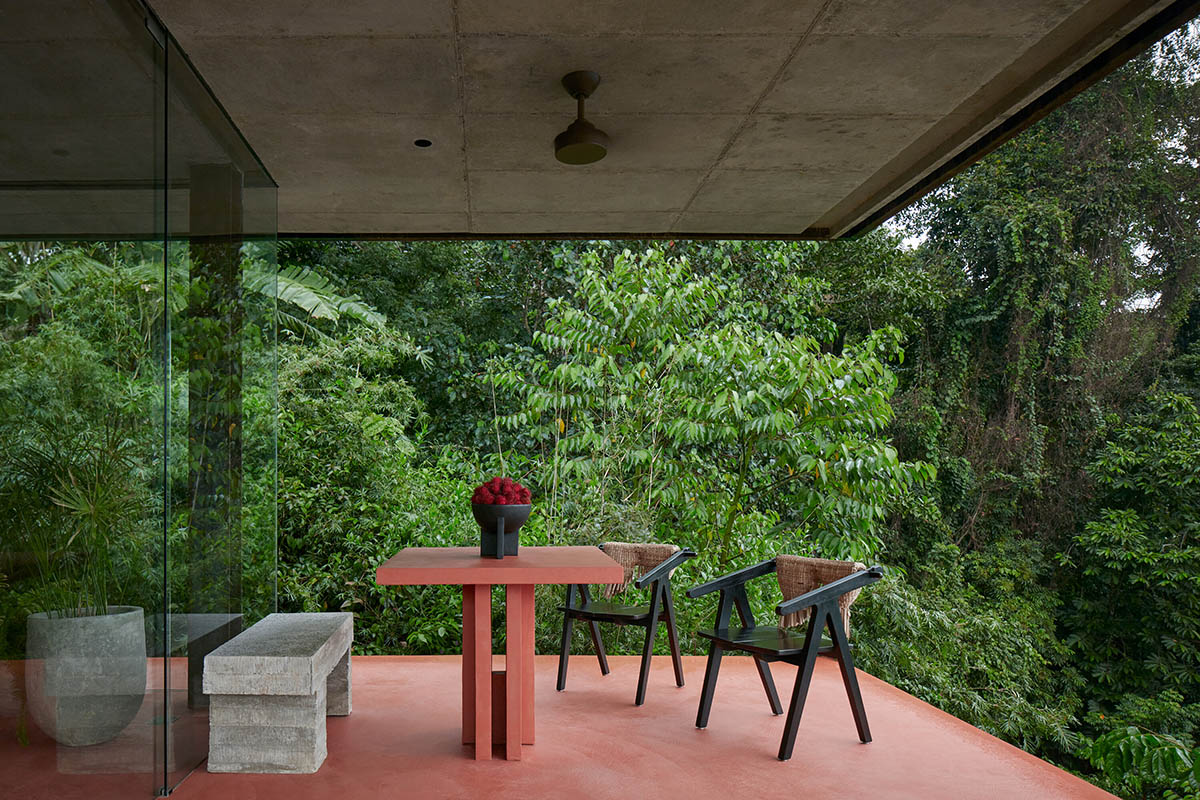
"I chose the materials as durable as possible considering the Costa Rican climate and high humidity," said Dagmar Štěpánová.
"To realize the clay "Rammed Earth" walls I invited an experienced specialist from Brazil, the owner of Terra Compacta company, because in Costa Rica no one had any experience with this construction method," she added.

The studio also emphasized that Daniel Mantovani from Terra Compact trained several local craftsmen and together they can attribute their first place to realize rammed earth architecture in Costa Rica.
The interiors are reflected with minimalist style and touches. For example, there is no door except for the large-format sliding panel in the section of the shower and toilet.
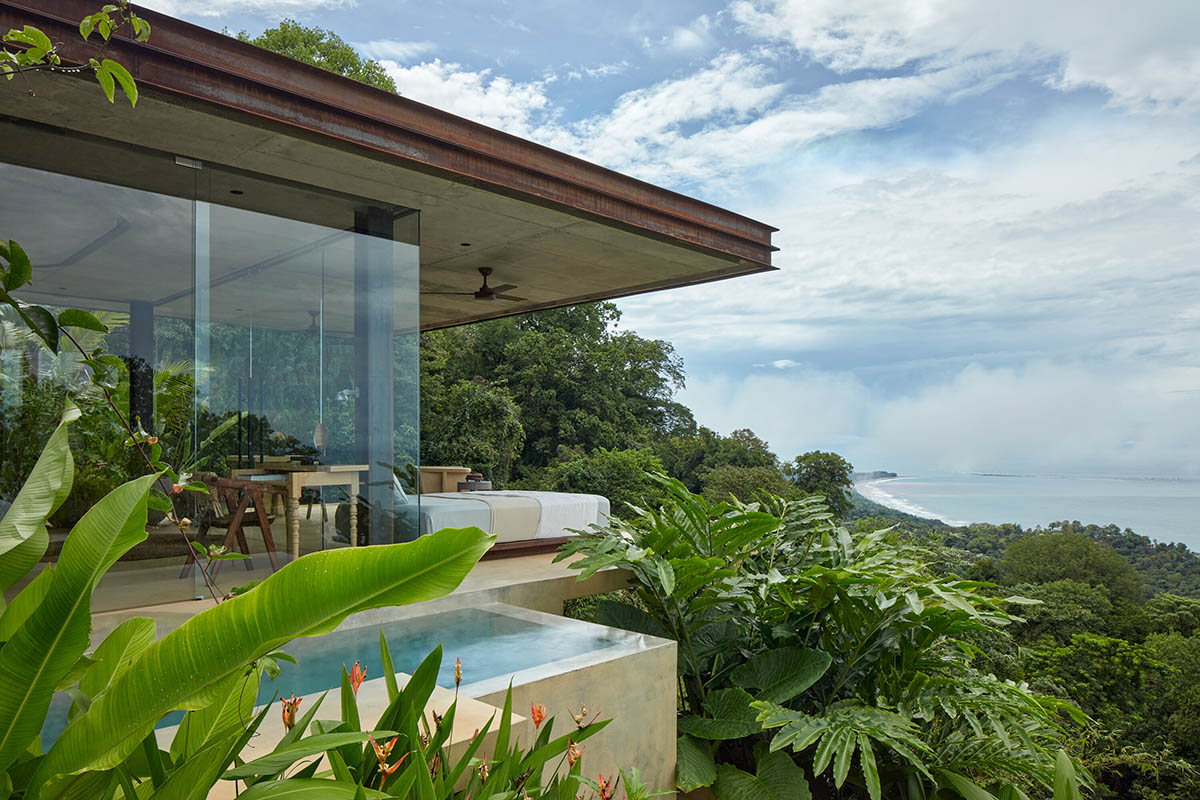
According to the studio, it also fulfills the function of a hanger wall with a large mirror. Pieces in the interiors were mostly designed custom-made such as kitchen desk, sink, shelves, solitary bedside tables or bench made of concrete.
"For some of the concrete solitaires, I was inspired by the work of the Belgian design studio Bram Vander-Beke. The creation of this studio is very close to me," said the founder architect Dagmar Štěpánová.
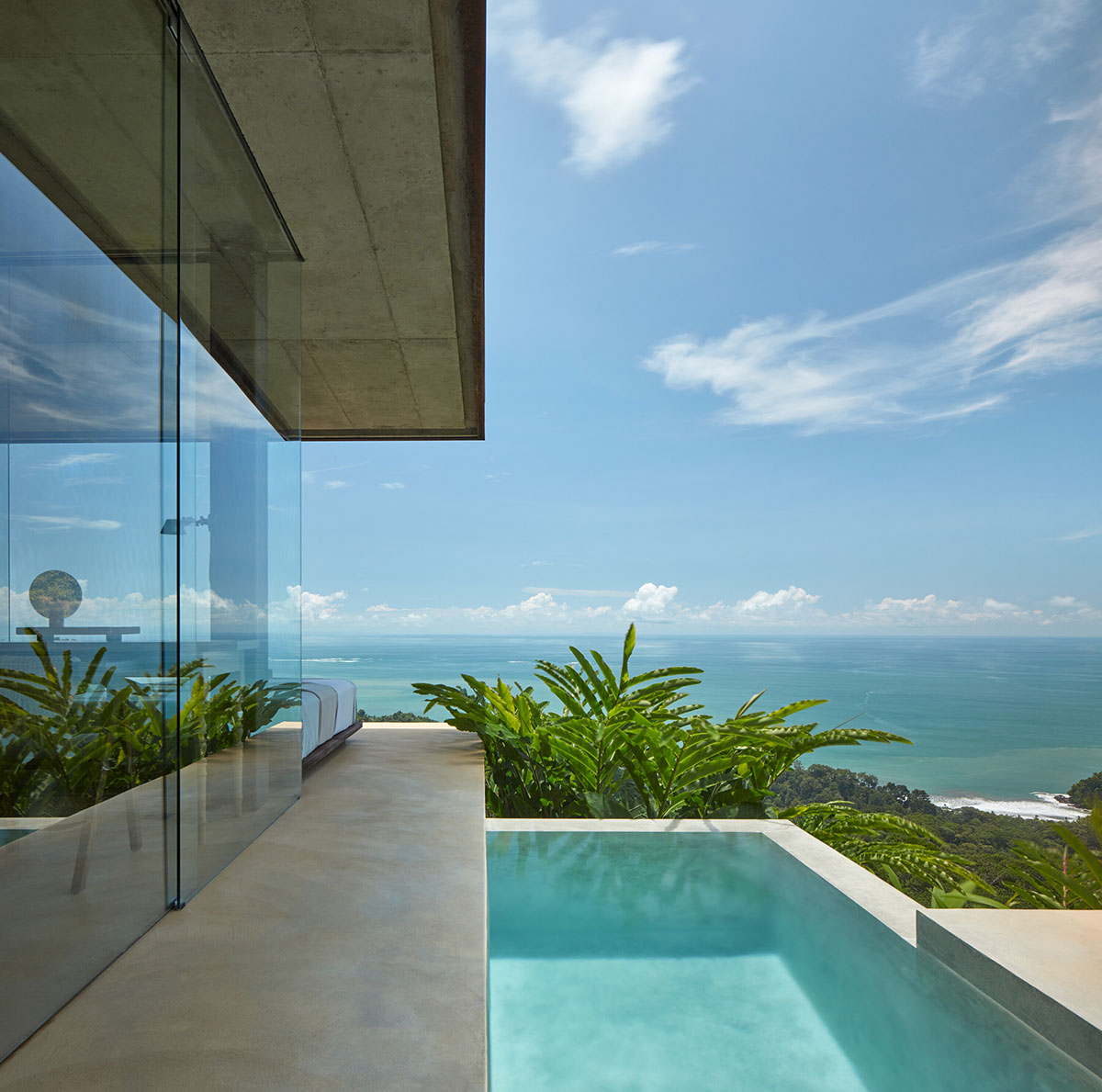
"Other furniture, luminaires, accessories and art were carefully selected with regard to originality, often directly from designers across all continents," Štěpánová added.
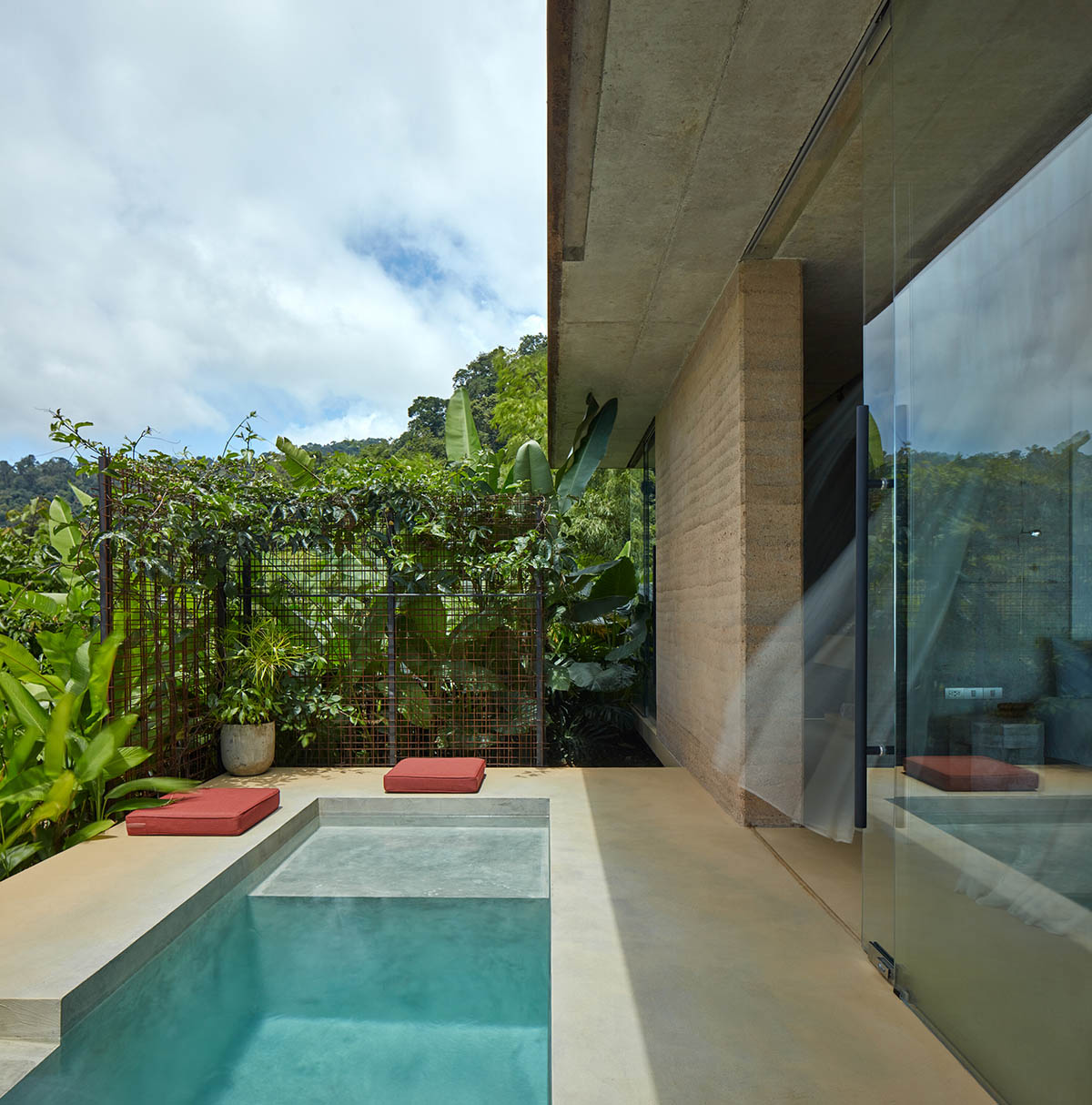
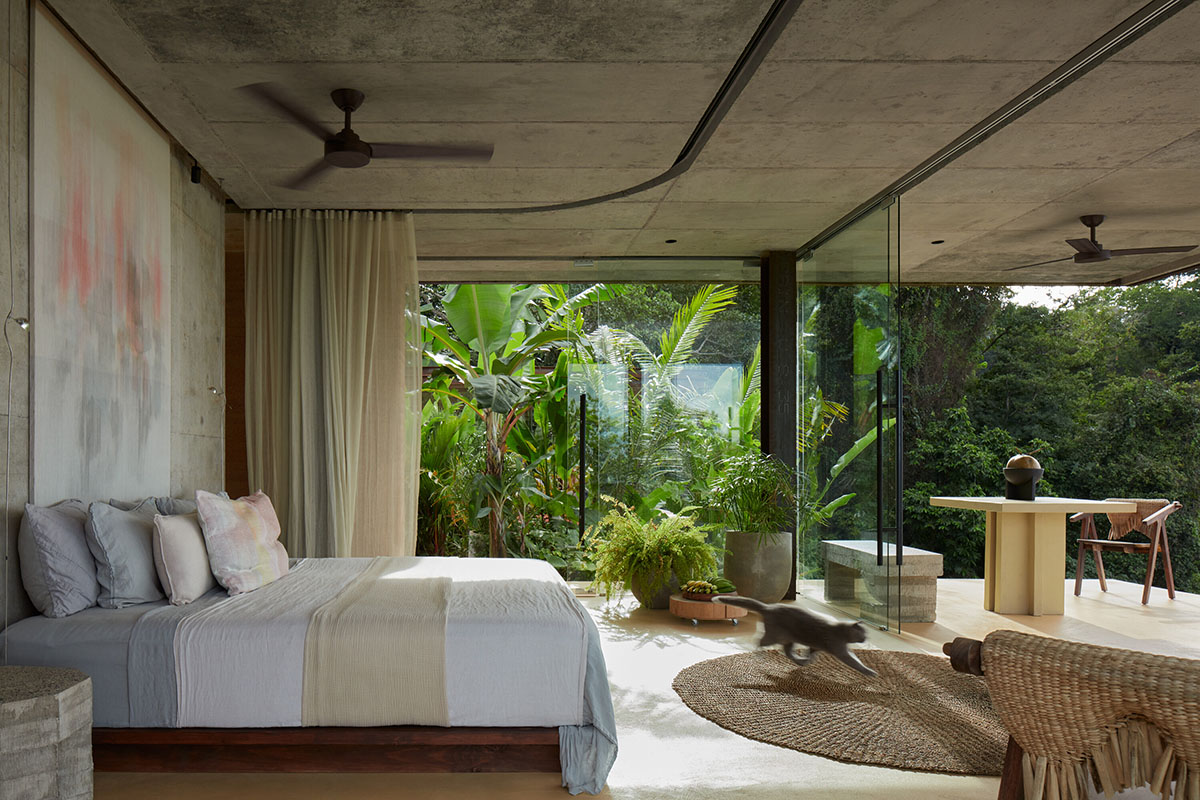
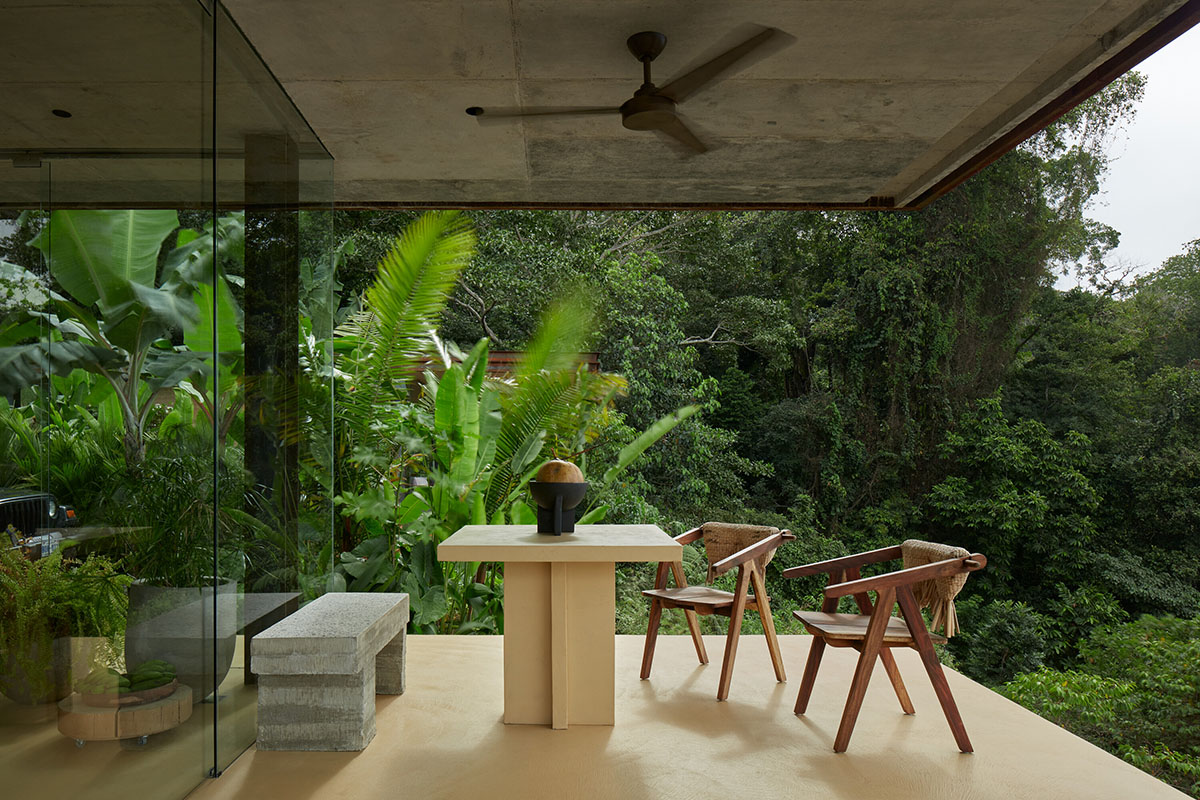
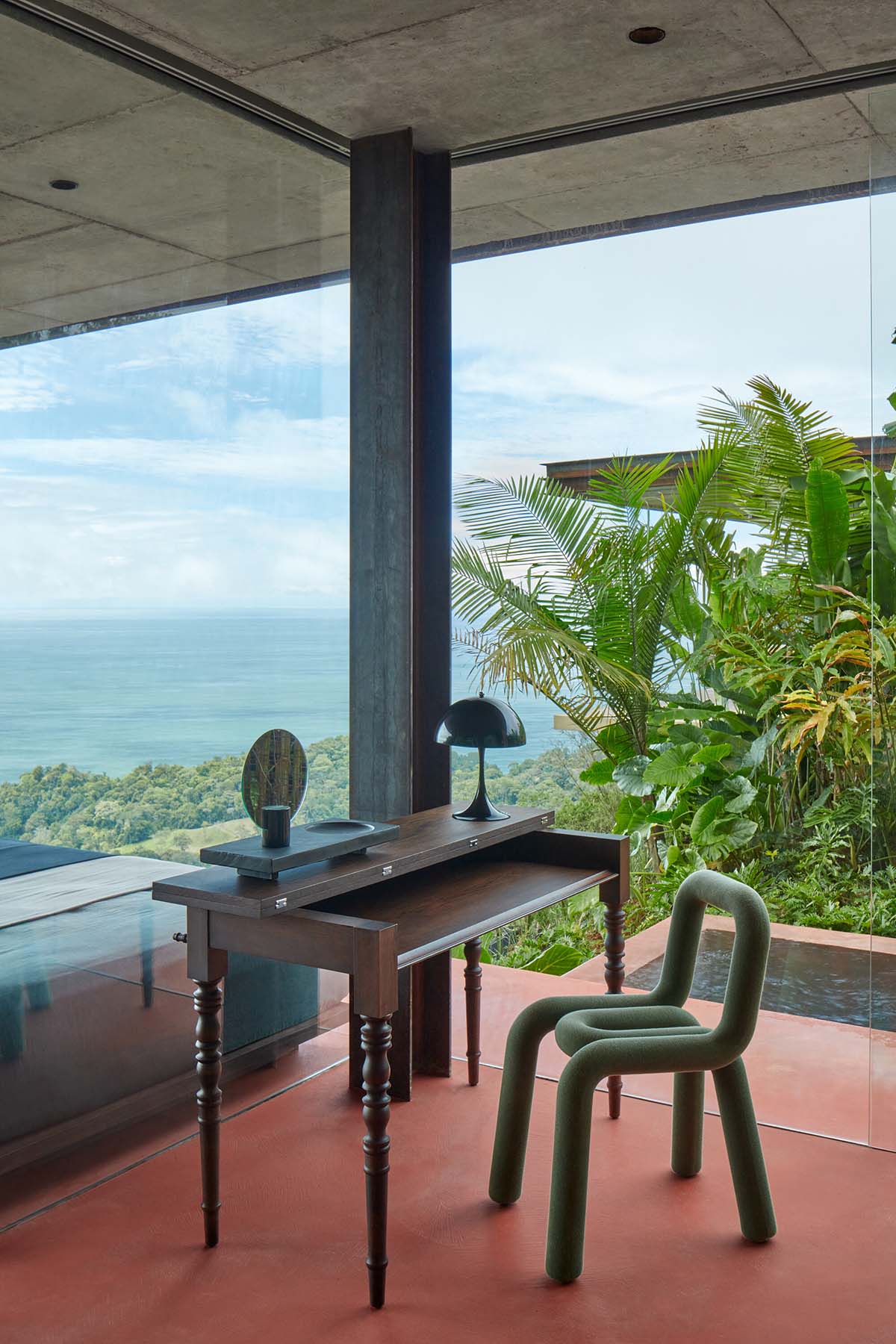
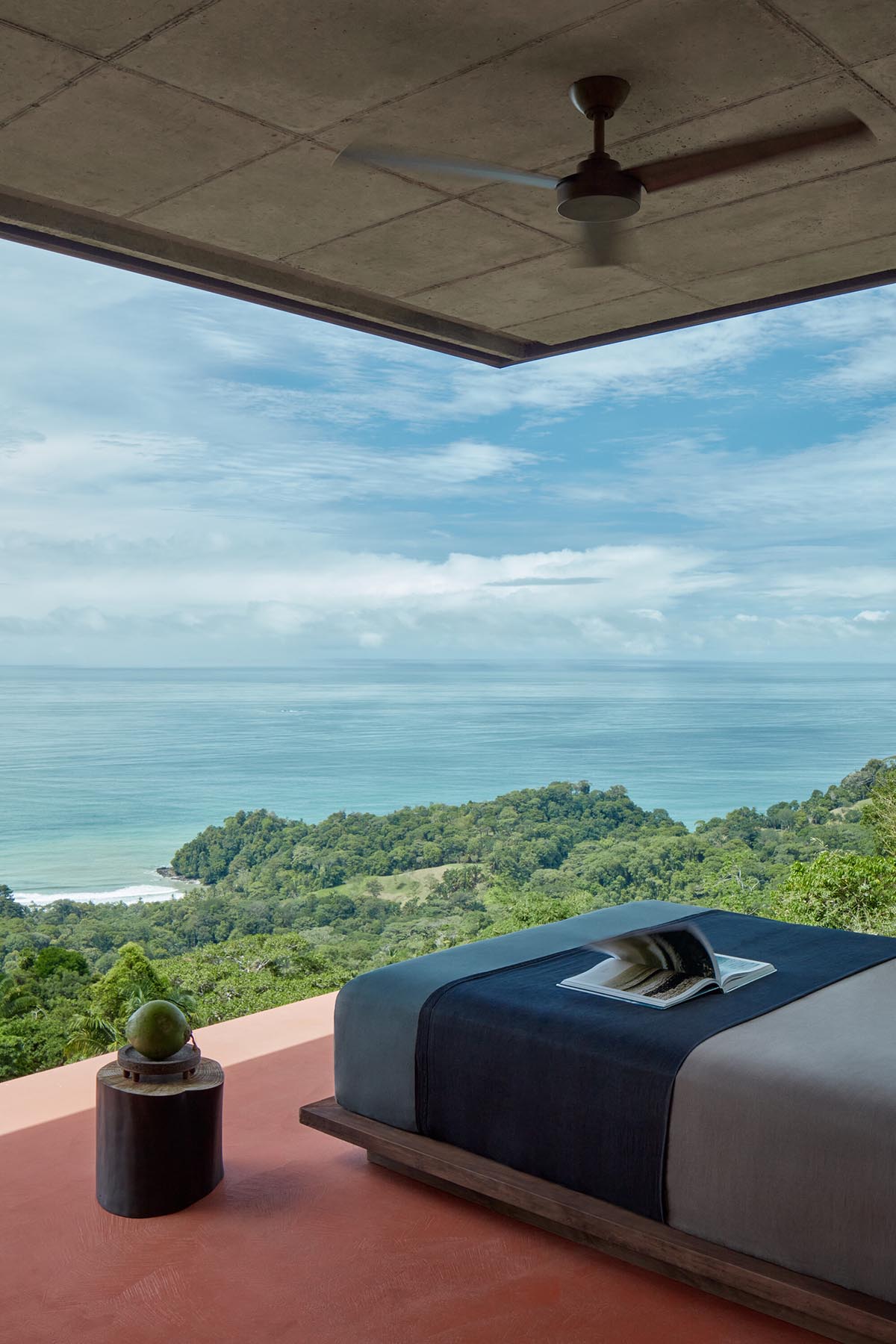
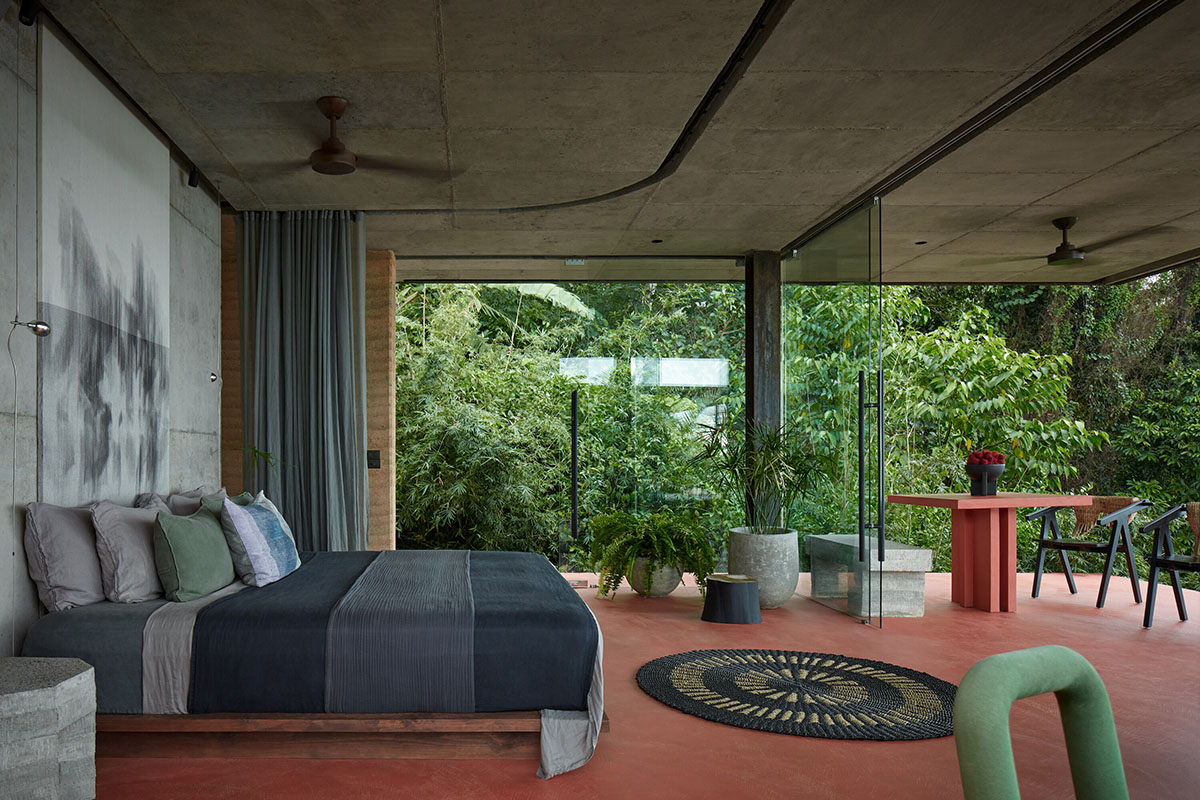
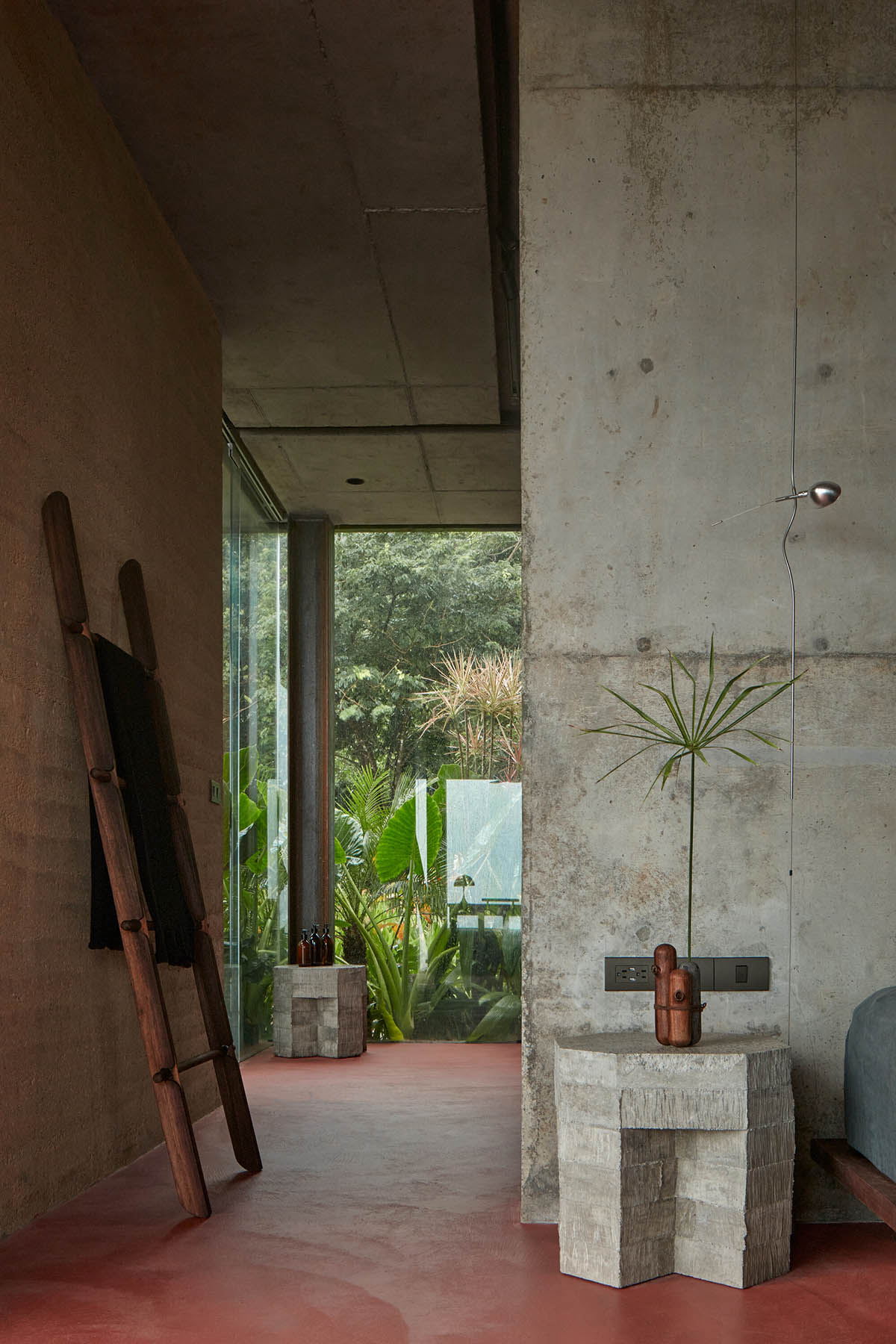
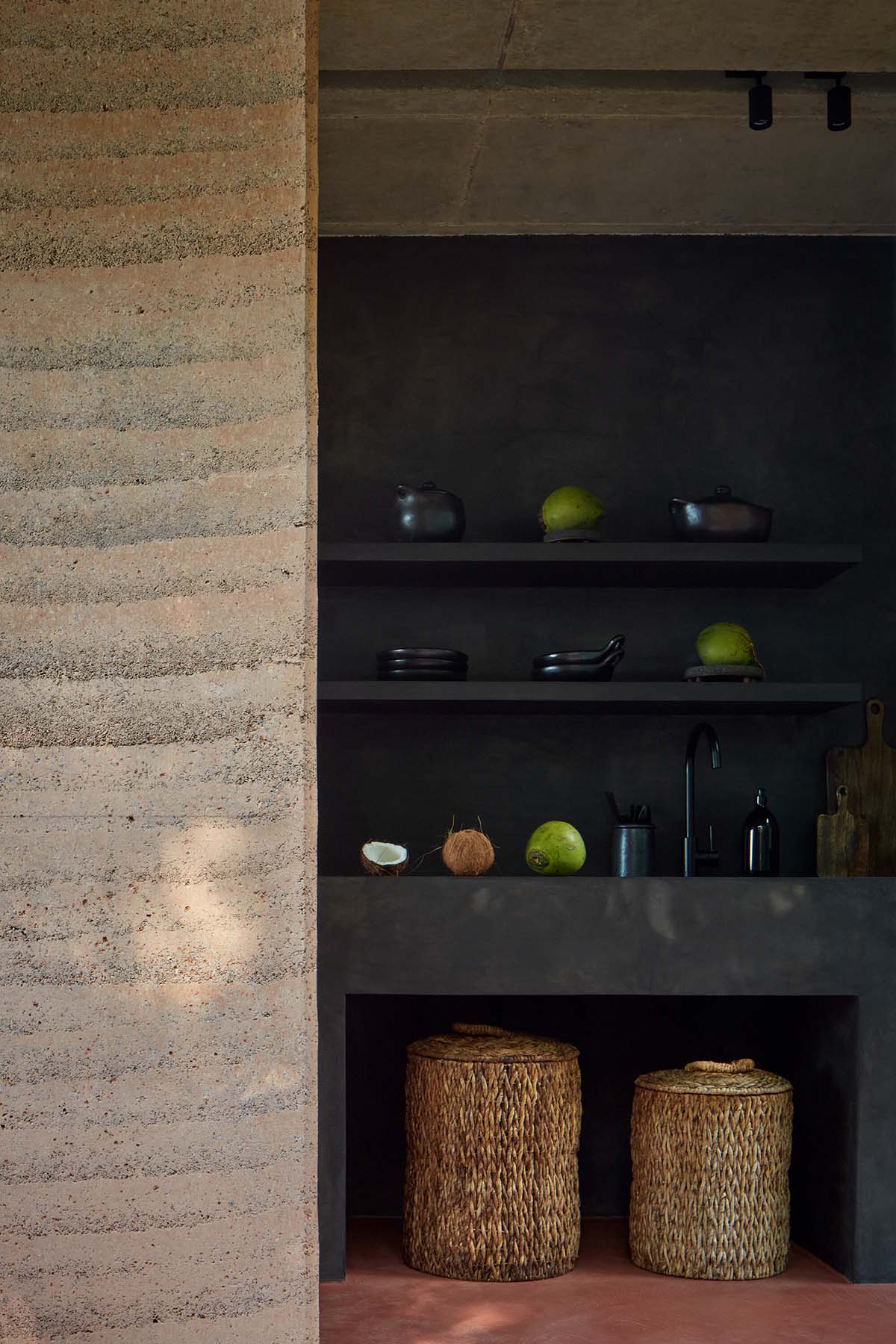
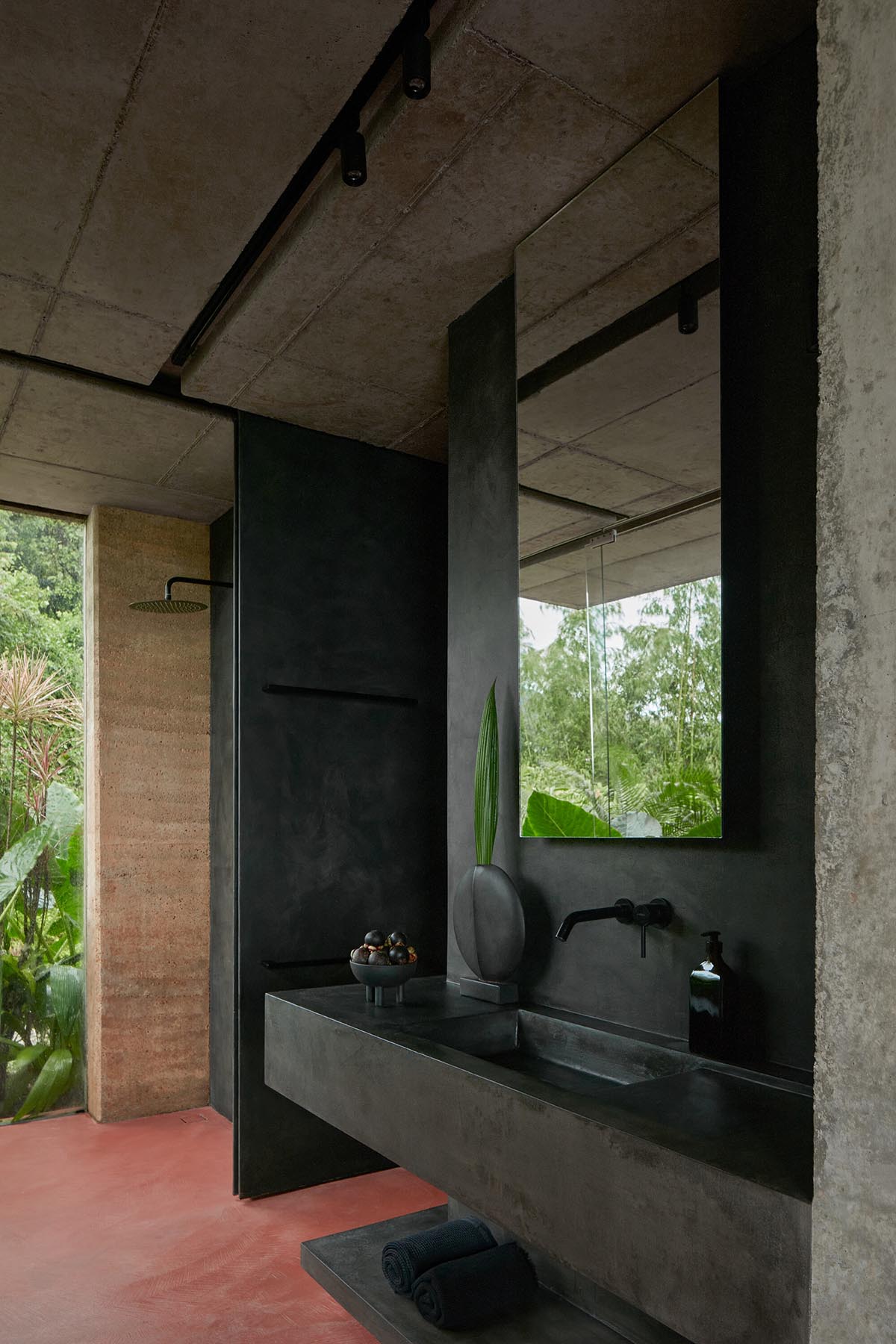
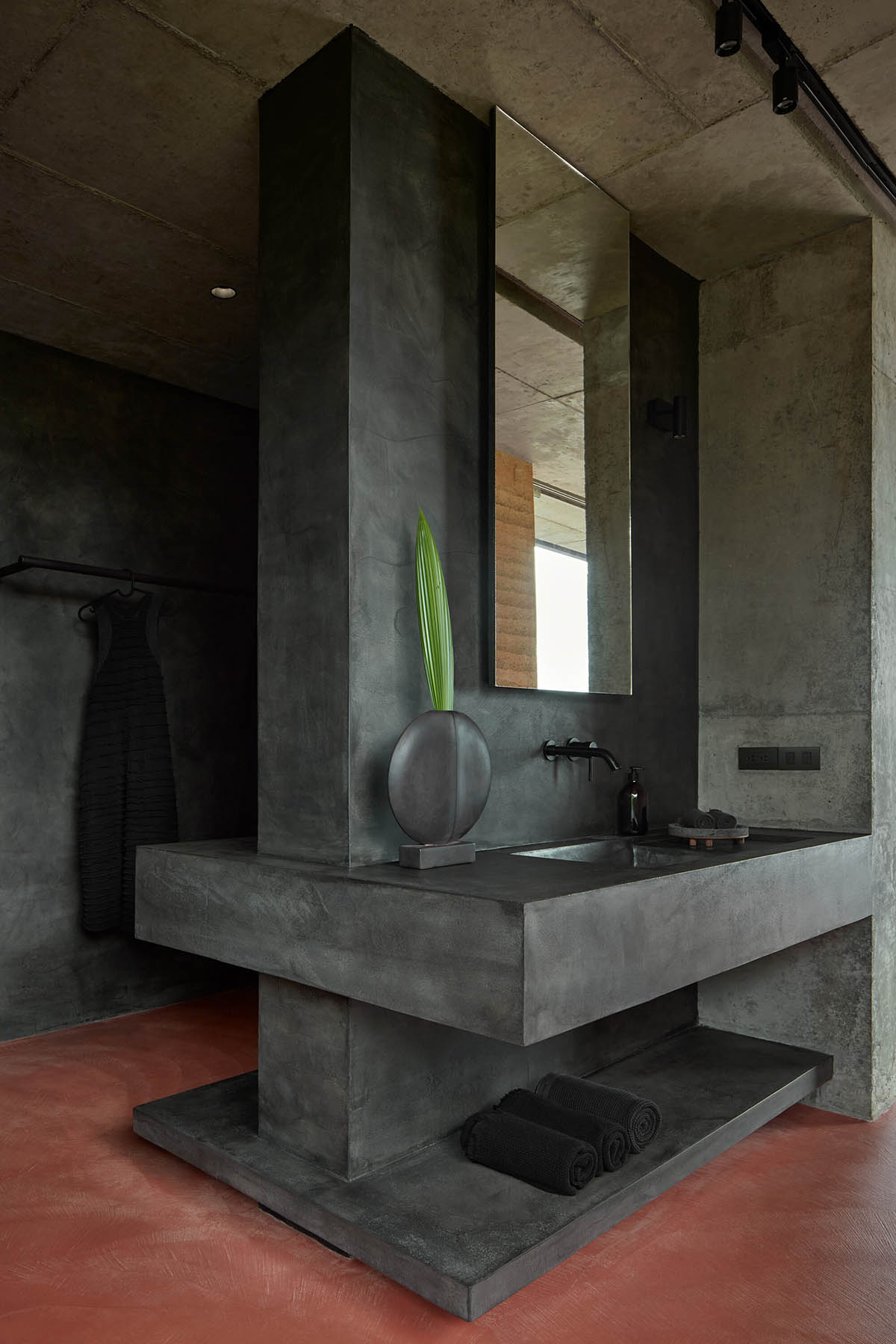
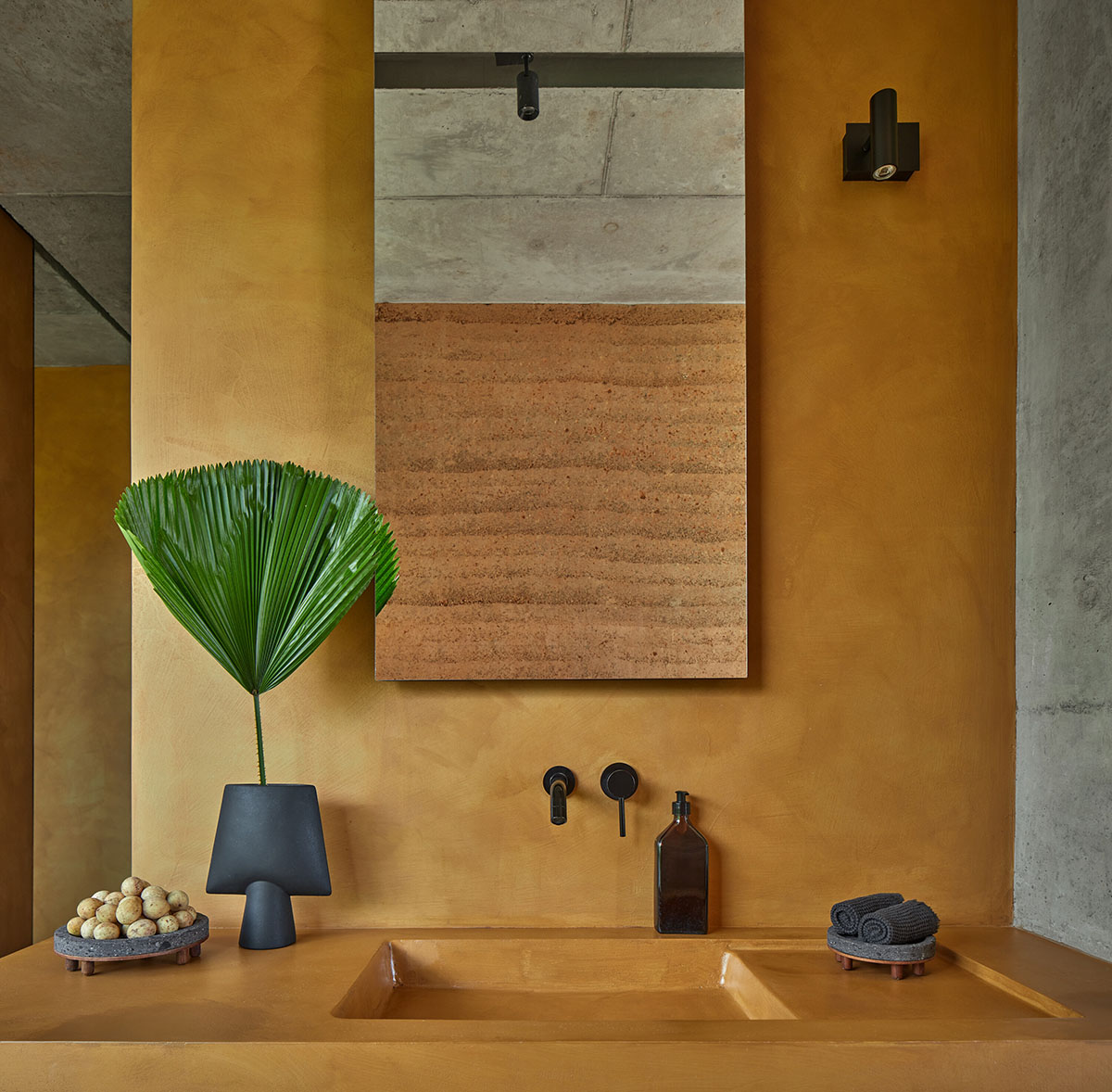
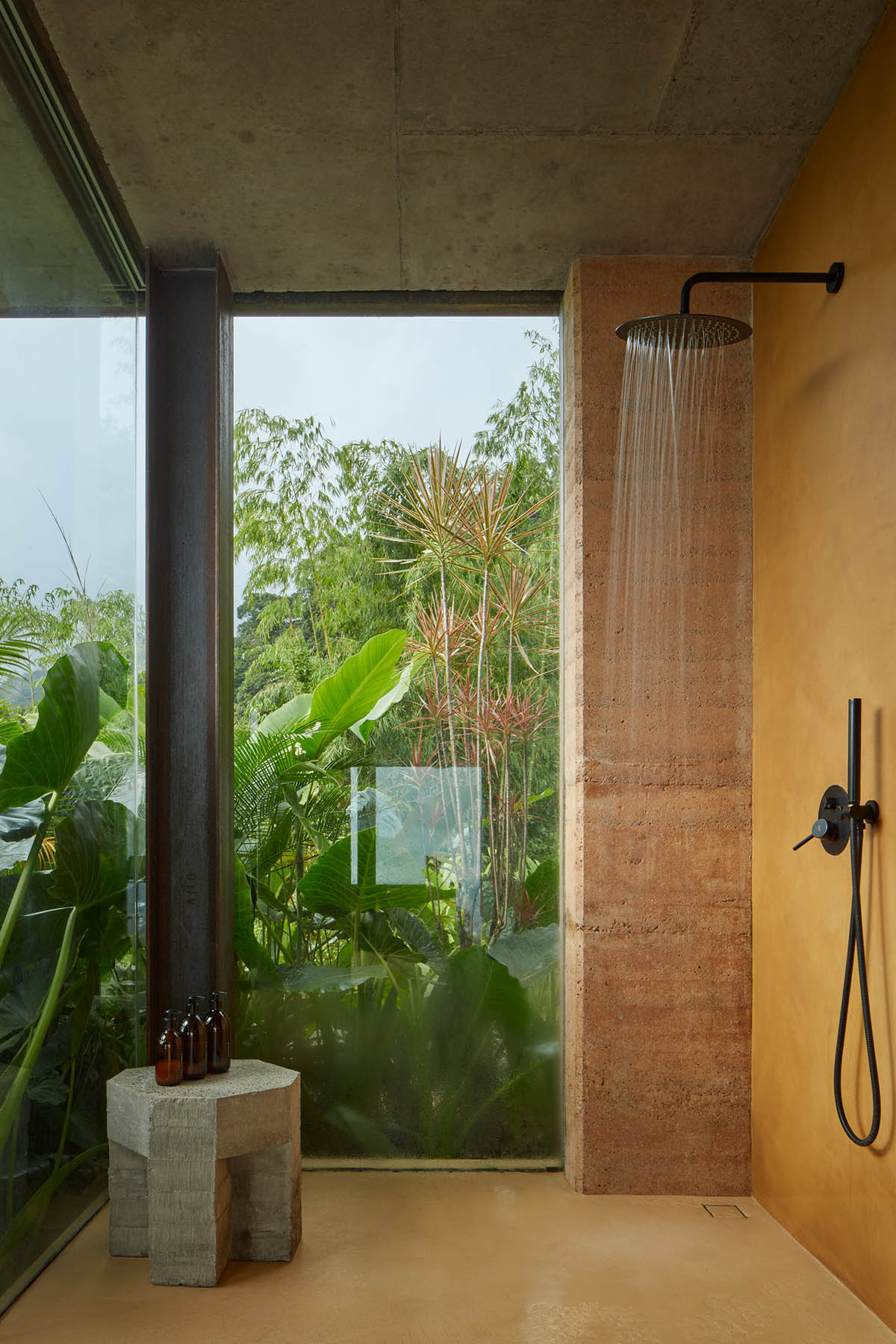
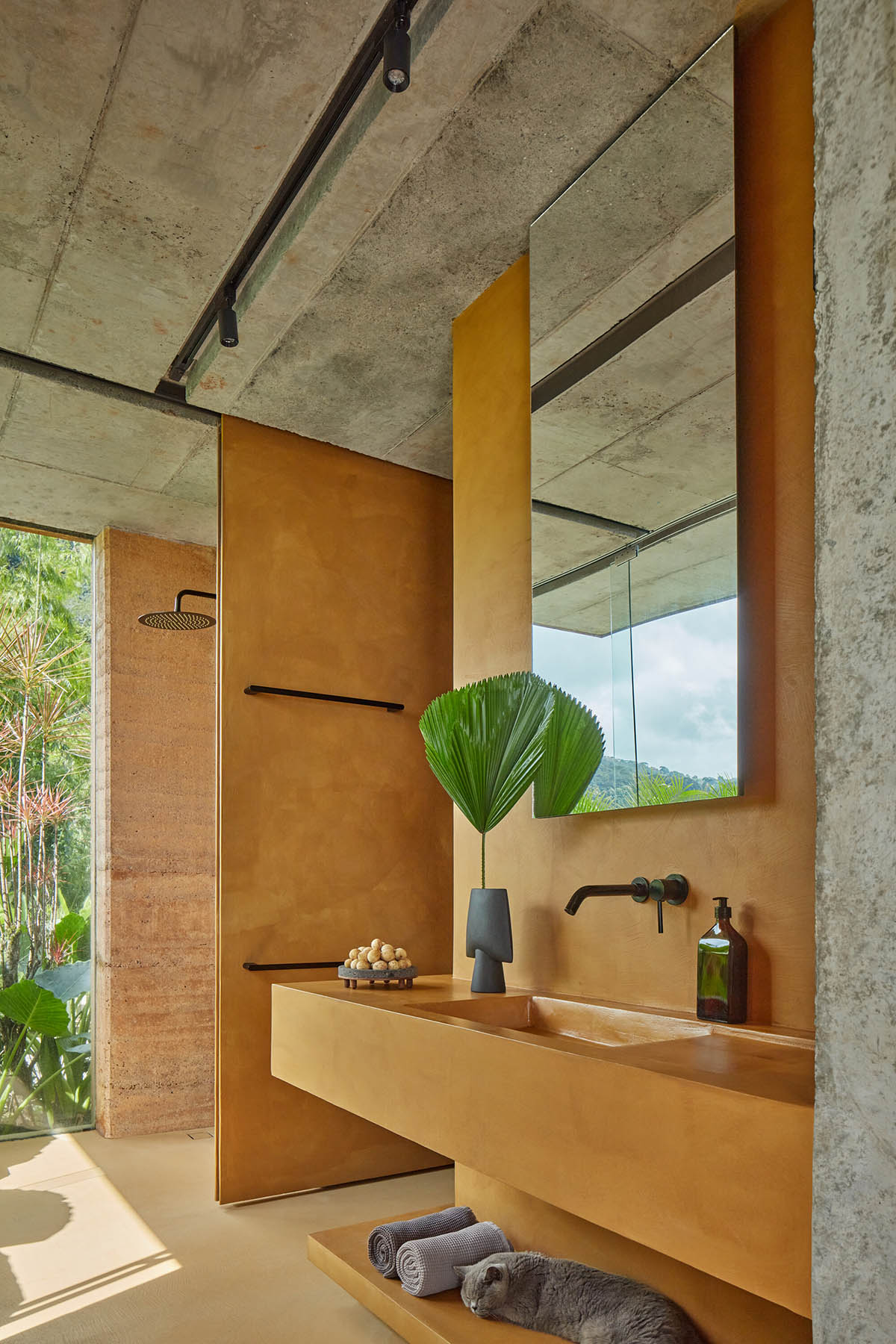
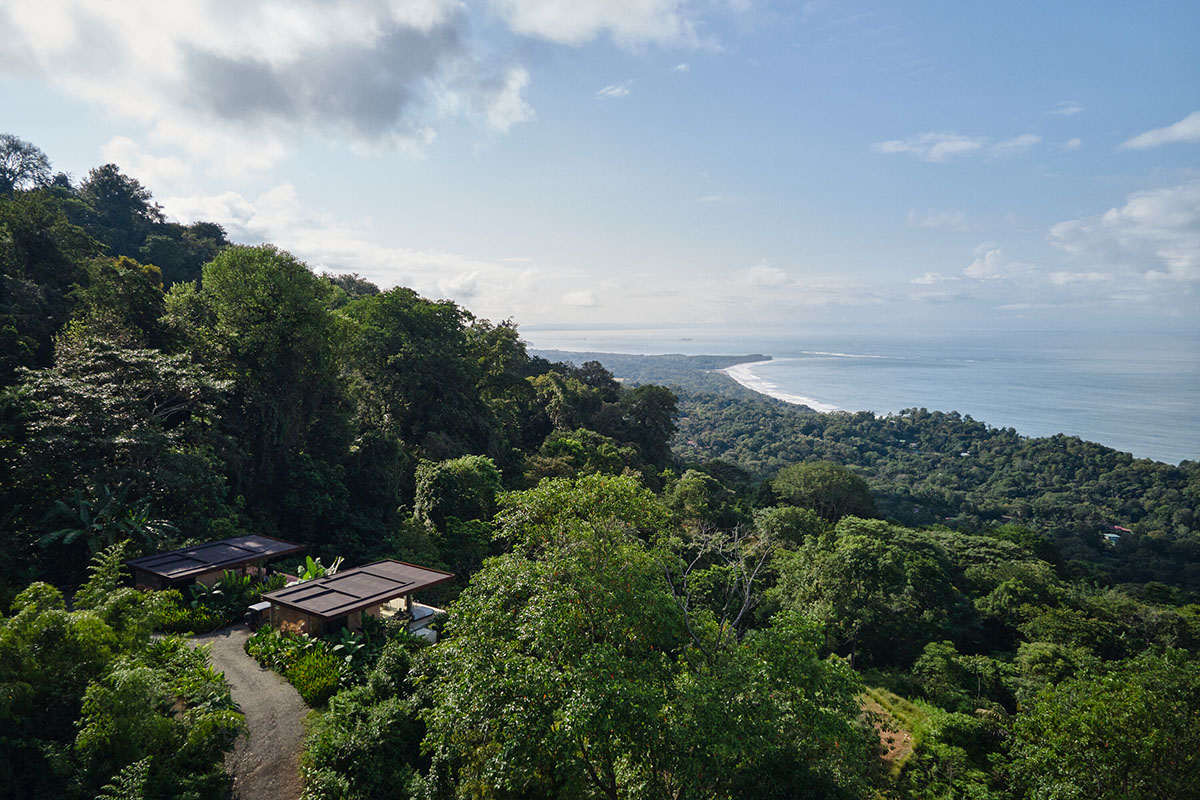
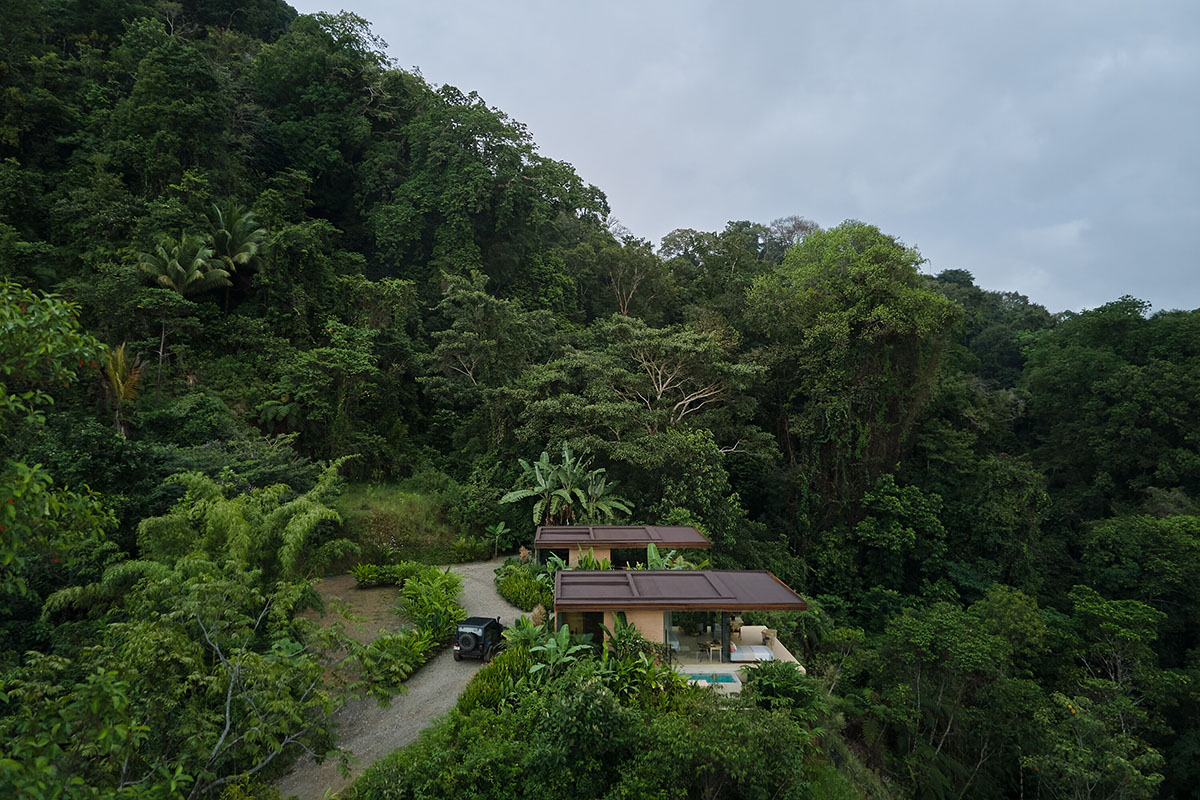
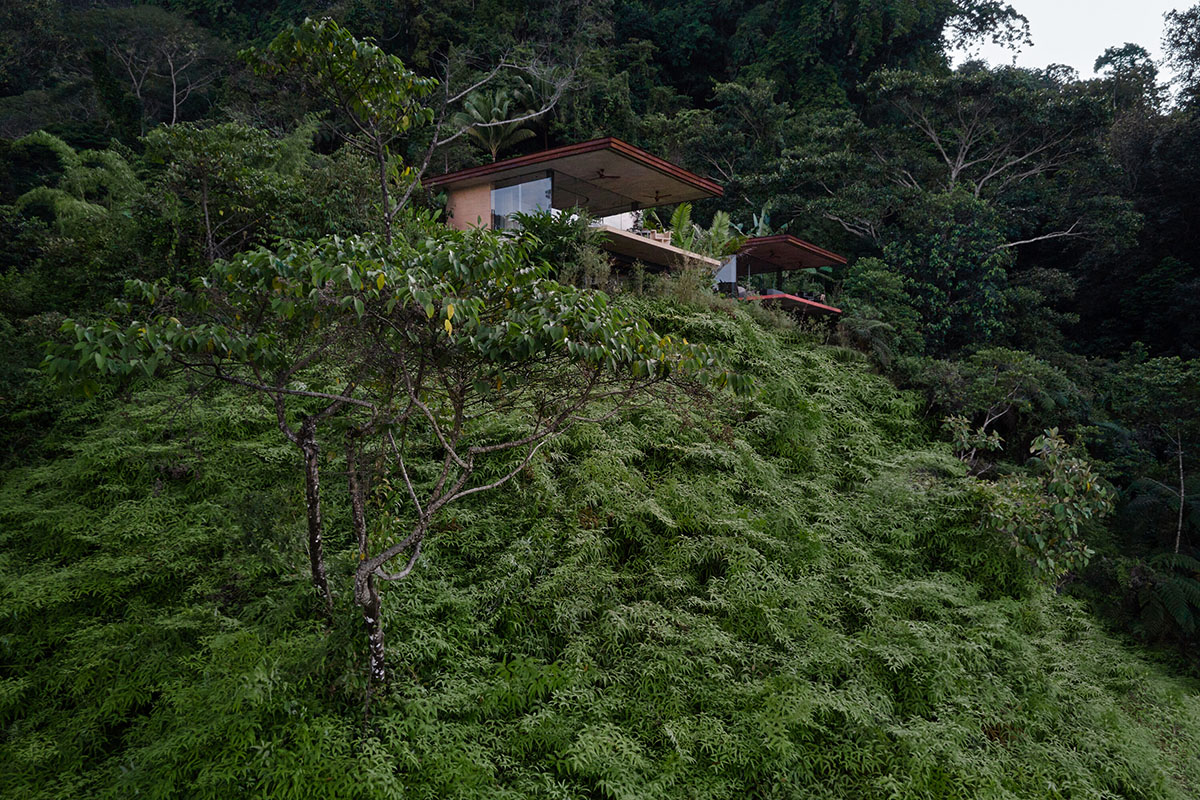
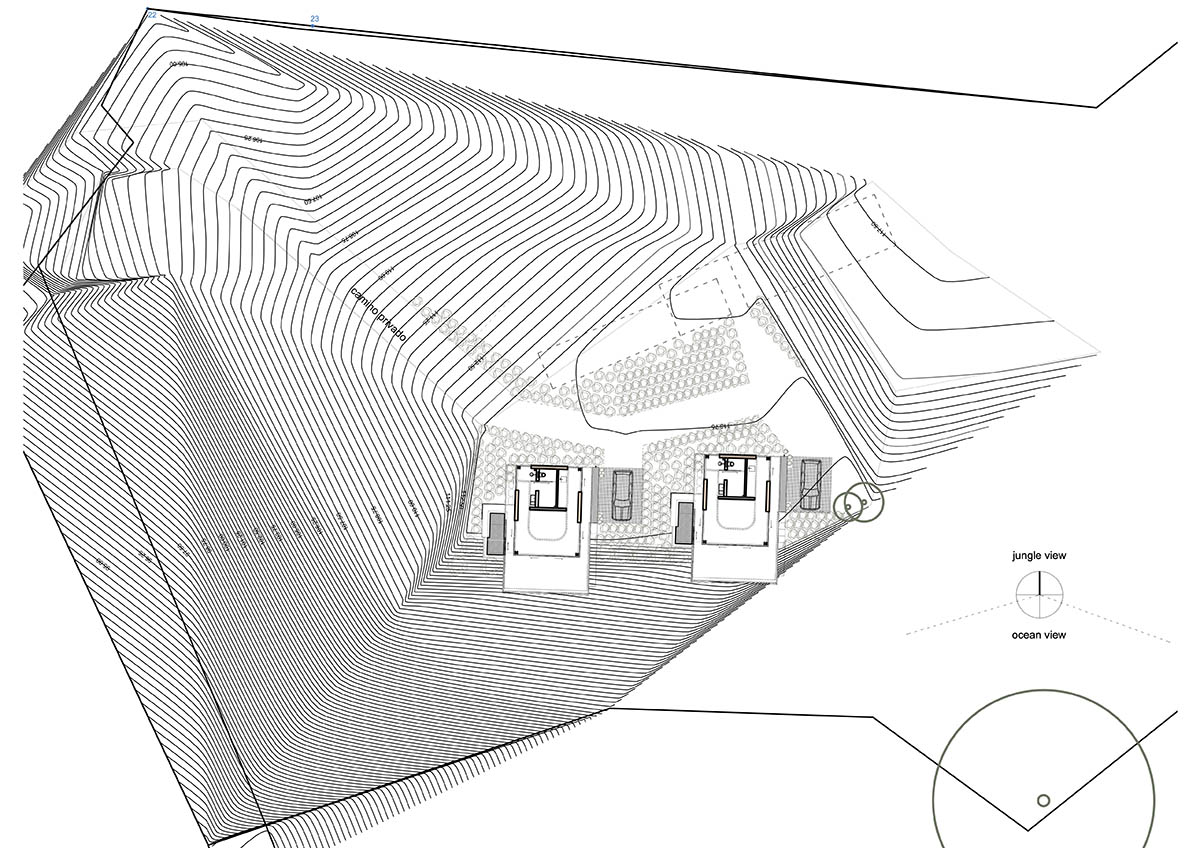
Site plan
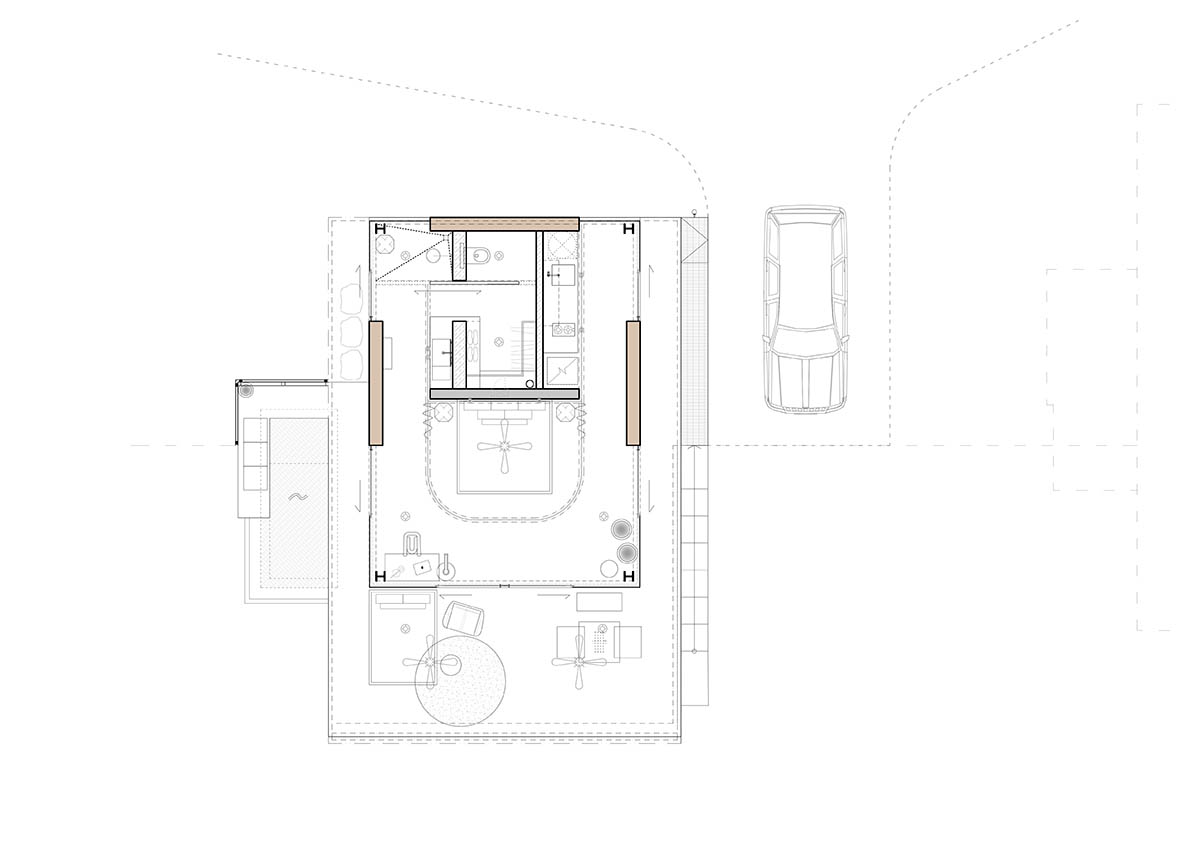
Ground floor plan
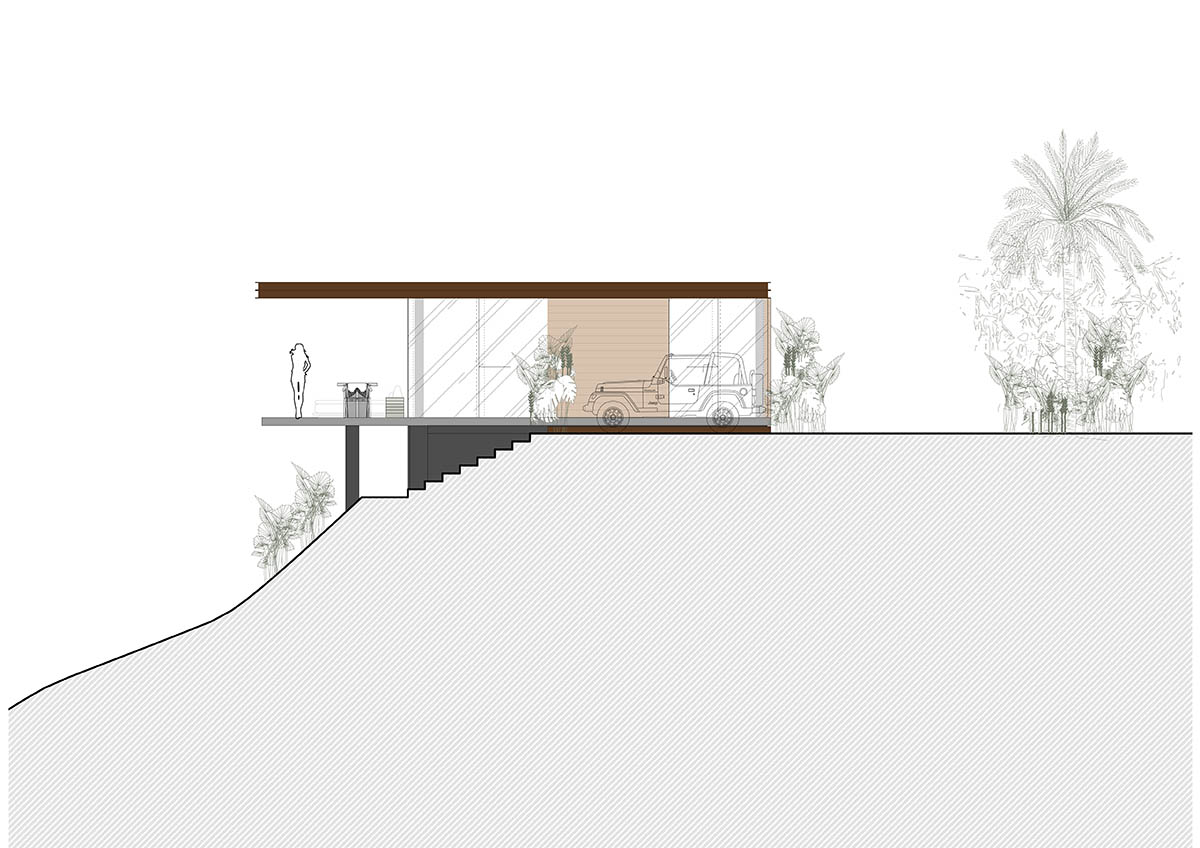
East elevation
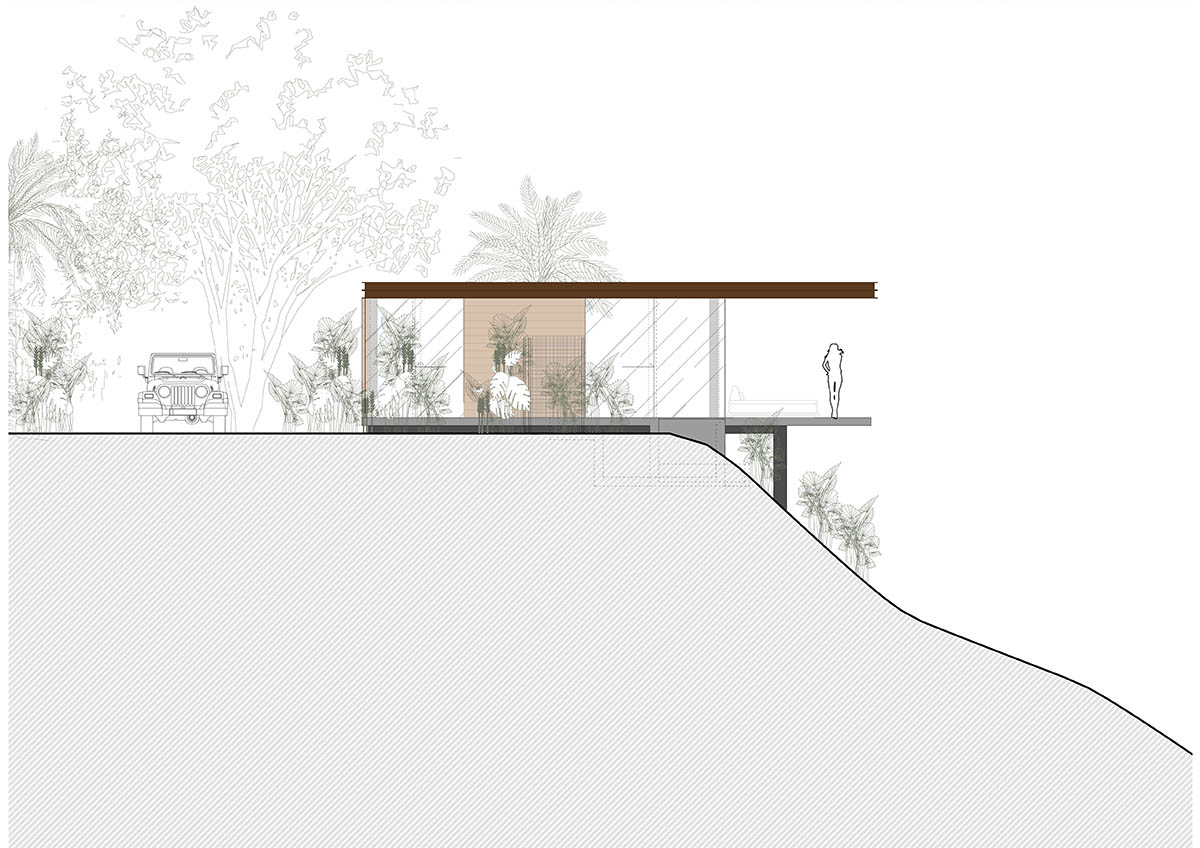
West elevation
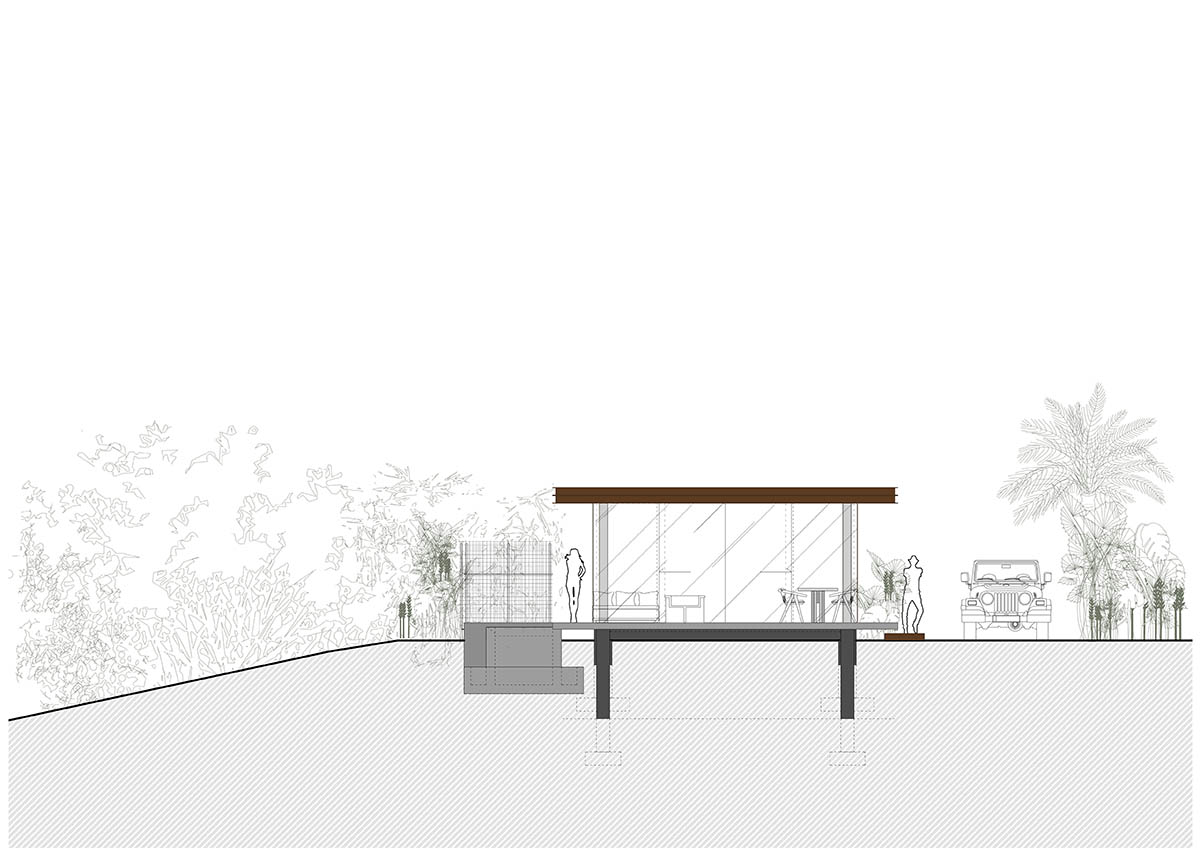
South elevation
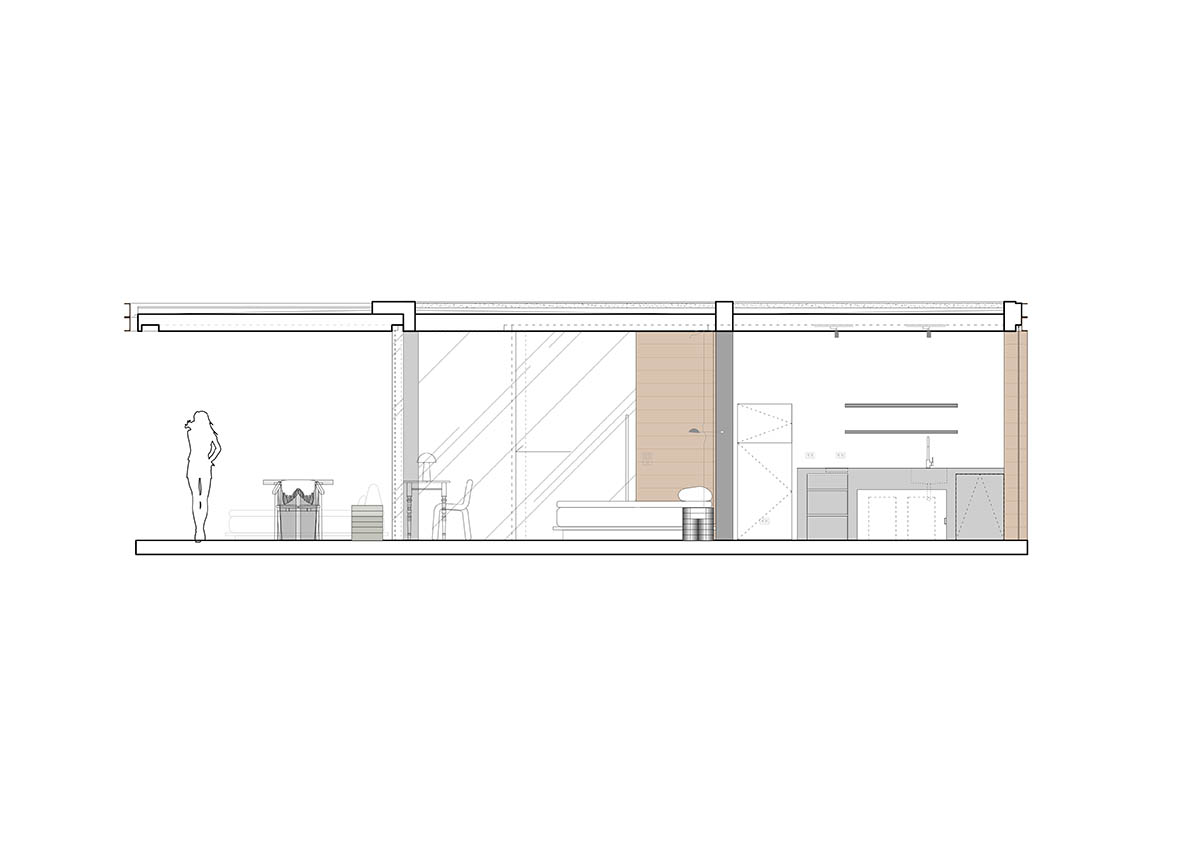
Interior elevation longitudinal
Formafatal studio was founded by architect Dagmar Štěpánová, and the team is comrpised of Dagmar, Katarina, Jan, Iveta, Dana, Anna, Debora, Petra and Lucie.
In 2020, Formafatal with Refuel Works designed Art Villa, featuring protruding outdoor swimming pool in Bahia Ballena, Playa Hermosa, Costa Rica.
Project facts
Project name: Achioté
Architects: Formafatal
Interior design: Formafatal
Location: Playa Hermosa, OSA, Uvita – Bahia Ballena, Puntarenas, Costa Rica
Project year: 2019-2020
Completion: 2022
Gross Floor Area: 180 m² / 90 m2 per villa
Client: Dagmar Štěpánová & Karel Vančura
Rammed earth walls: Terra Compacta, Daniel Mantovani
Statics: Ch. Vargas
Garden: Dagmar Štěpánová, part of the architectural project
Realization: construction leader Willy Jeferson Céspedes Vargas + local workers
Realization of screed surfaces: Different Design, Pavel Trousil.
Graphic design, logo: Zuzana Vemeová
All images © BoysPlayNice.
All drawings © Formafatal.
> via Formafatal
